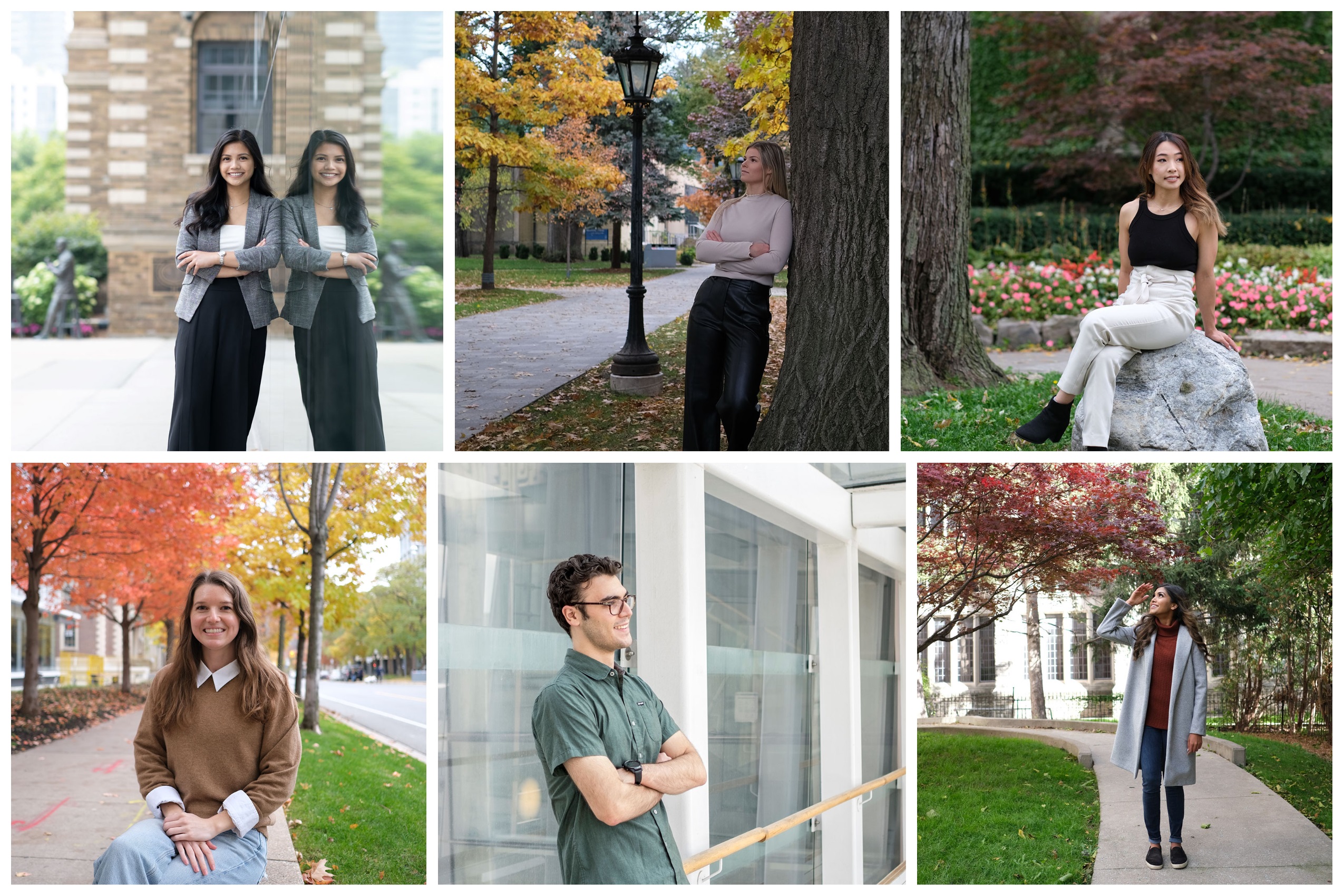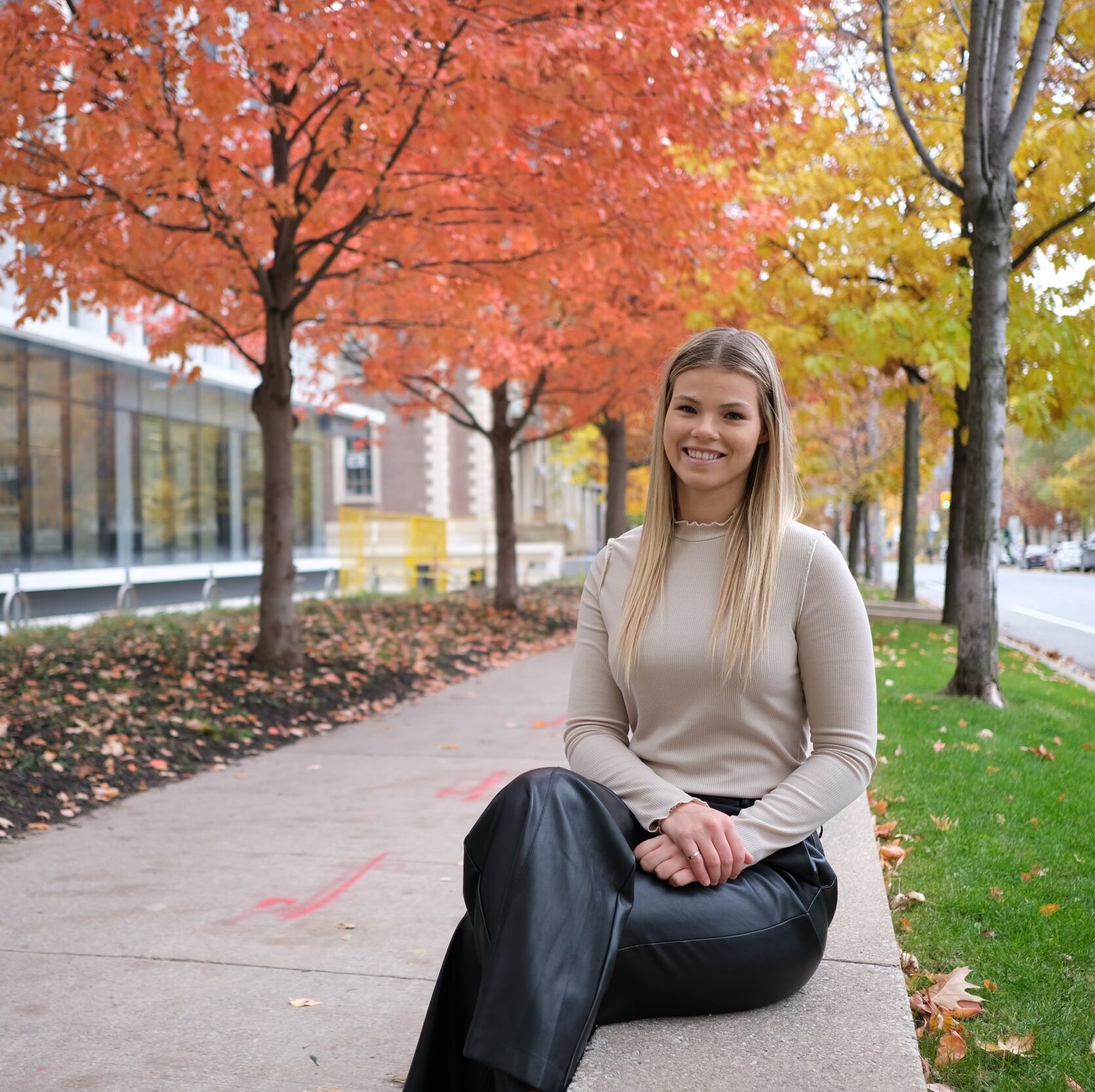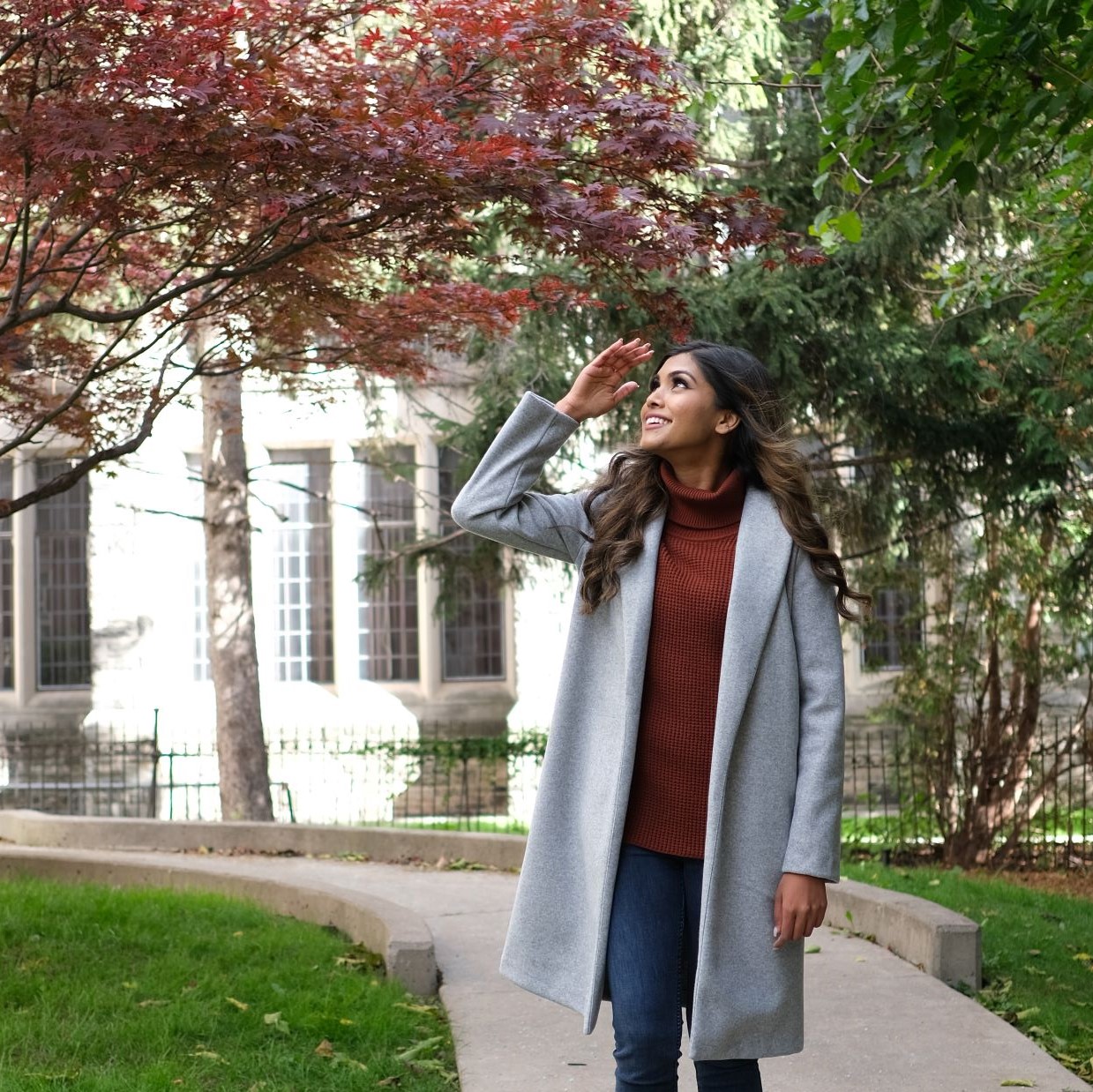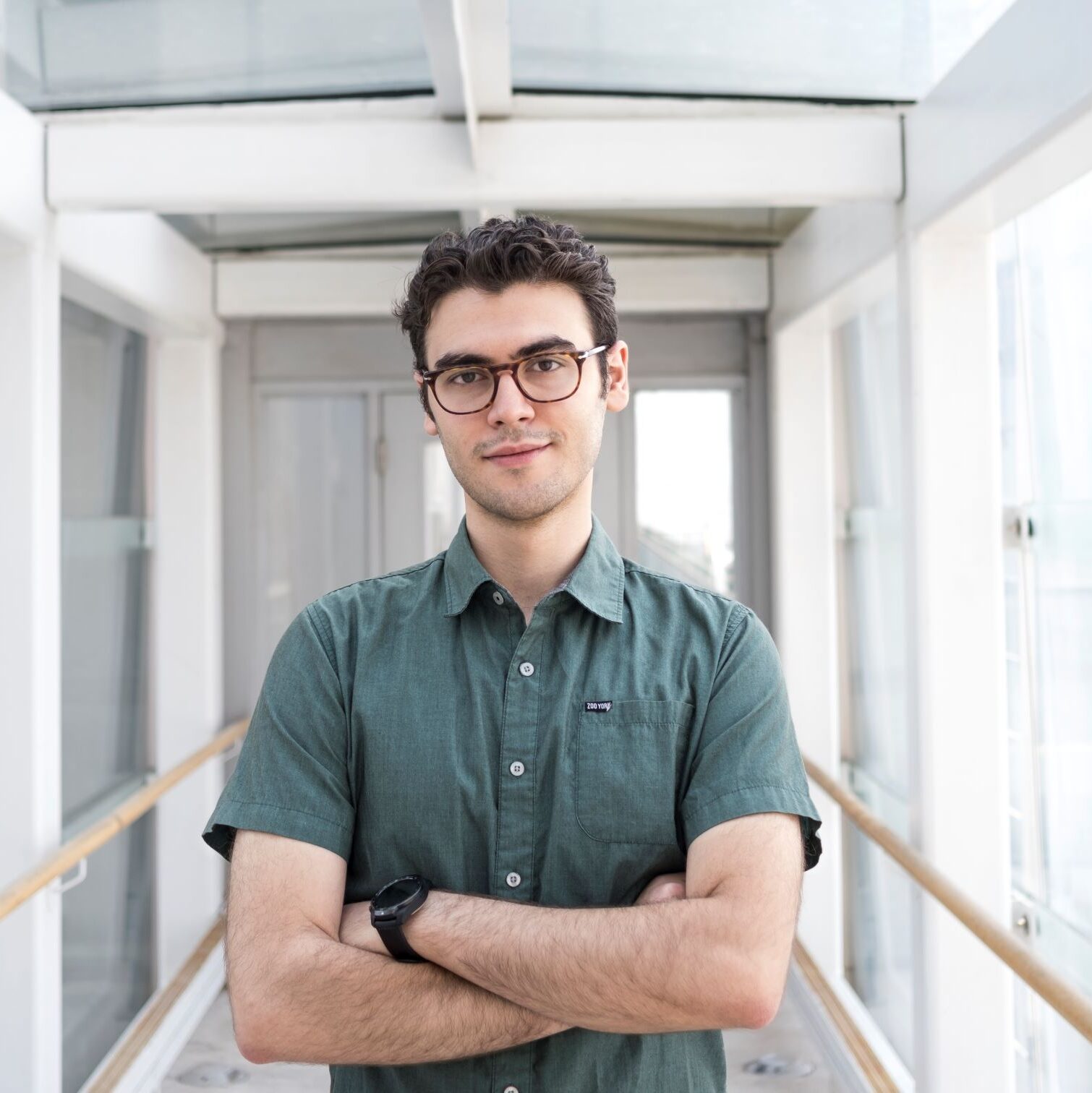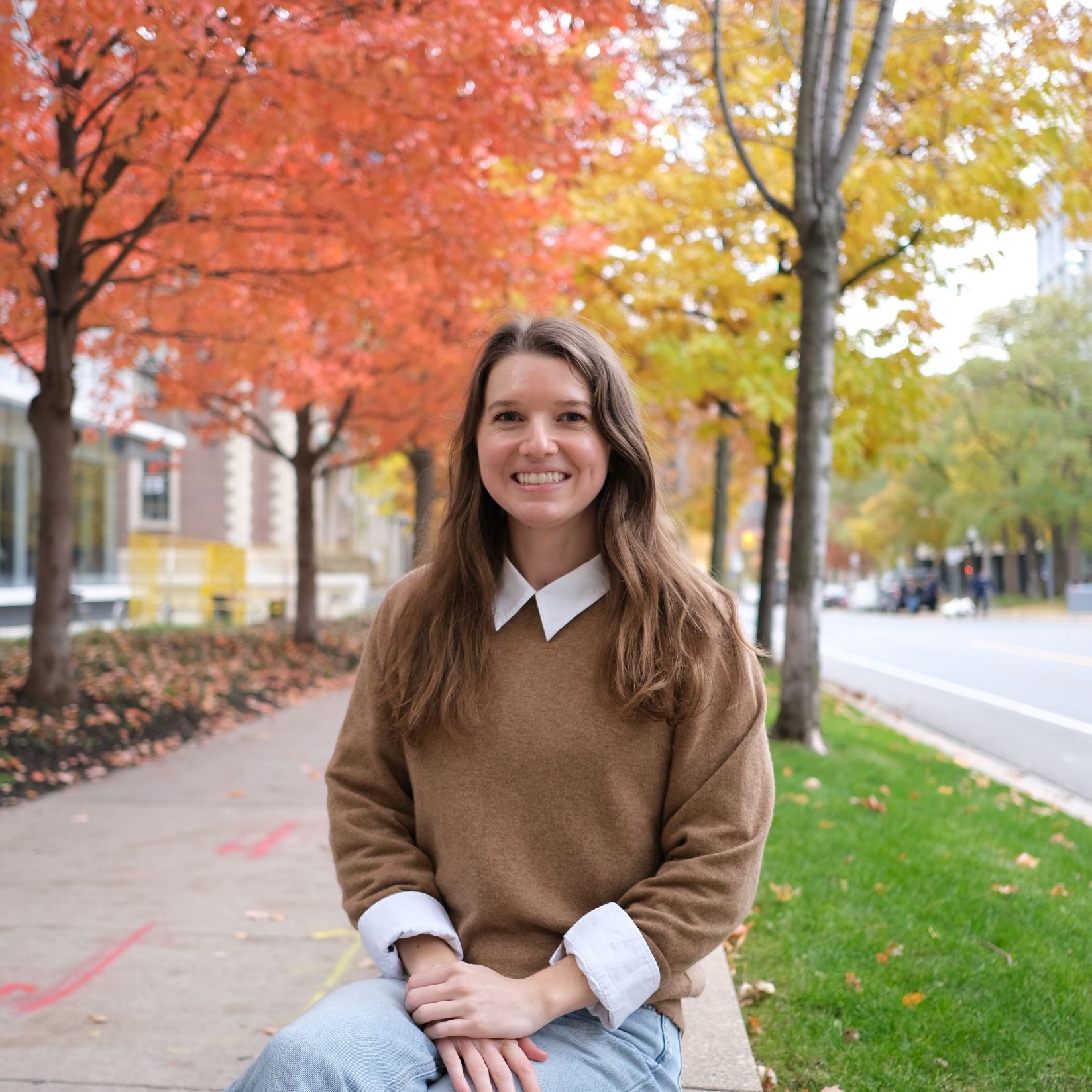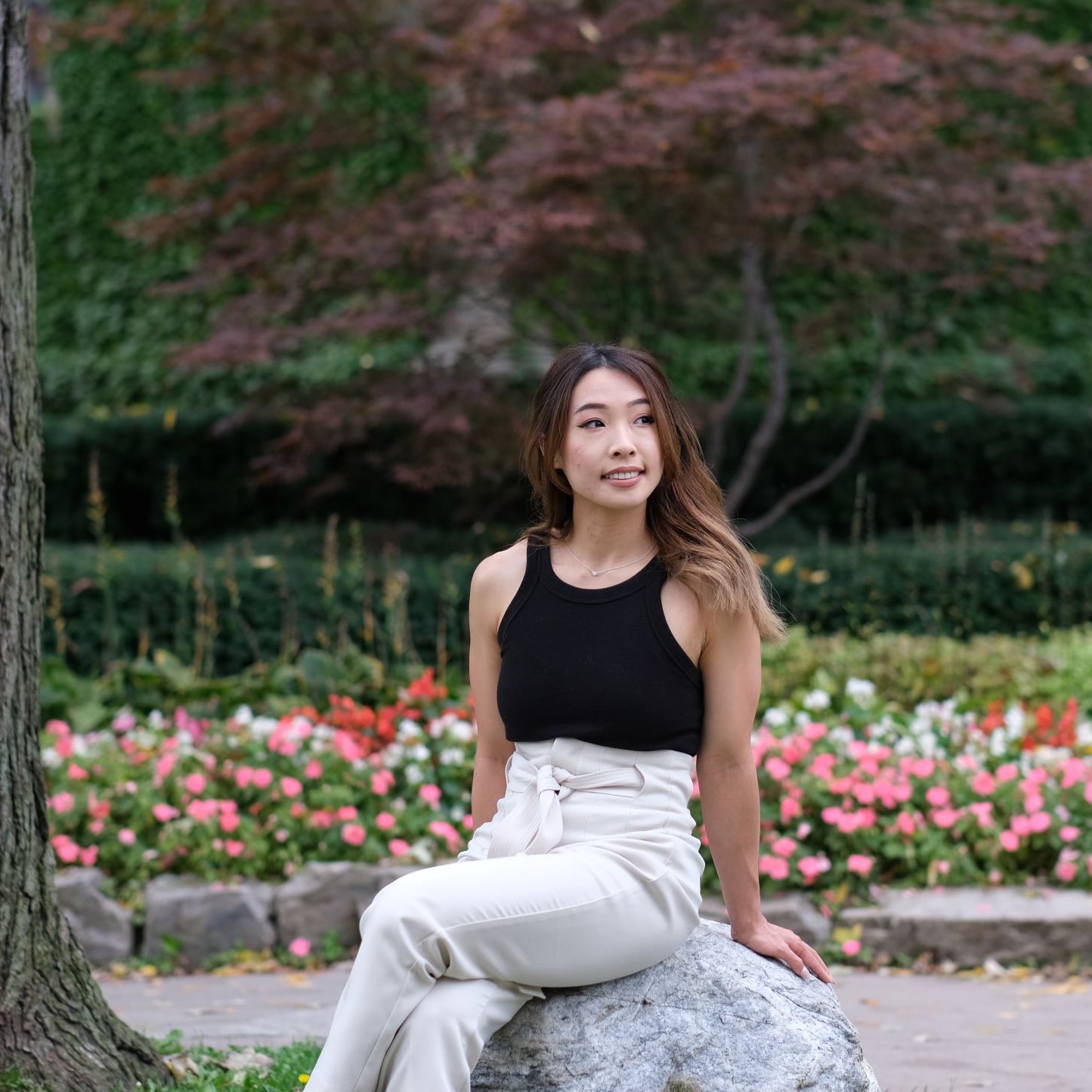The journey of a graduate student is an odyssey, filled with transformative experiences that shape their perspectives for years to come. To capture this experience, we embarked on a time-capsule editorial project, talking to several graduate students in the Institute of Biomedical Engineering (BME) as they transition out of the COVID-19 lockdown. Through their compelling stories, we seek to preserve the essence of their hope, aspirations, and unwavering optimism, immortalizing this transformative moment in their lives.
Back in 2021, one year into the lockdown, we sat down with 6 MASc and PhD students from BME, exploring their visions for a world changed in two years’ time. During those initial interviews, the COVID-19 pandemic posed significant challenges to these students, disrupting their academic pursuits, limiting research opportunities, and hindering their professional development. Remote learning, virtual conferences, and restricted access to labs and resources became the new norm.
Recently, we had the opportunity to reconnect with these extraordinary individuals and witness the profound evolution of their perspectives. Read about their stories below.
Doris Adao, PhD Candidate
2021
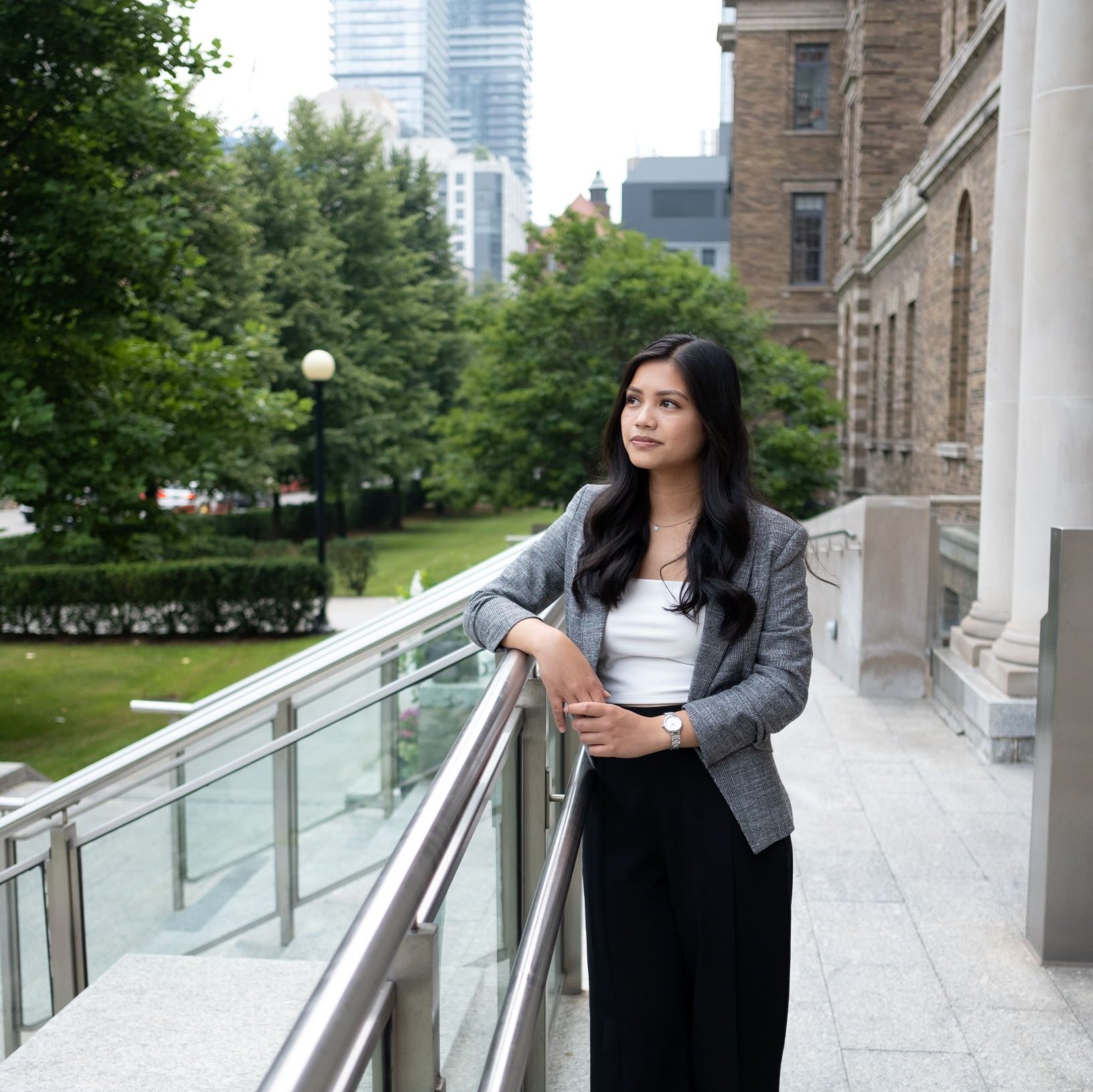
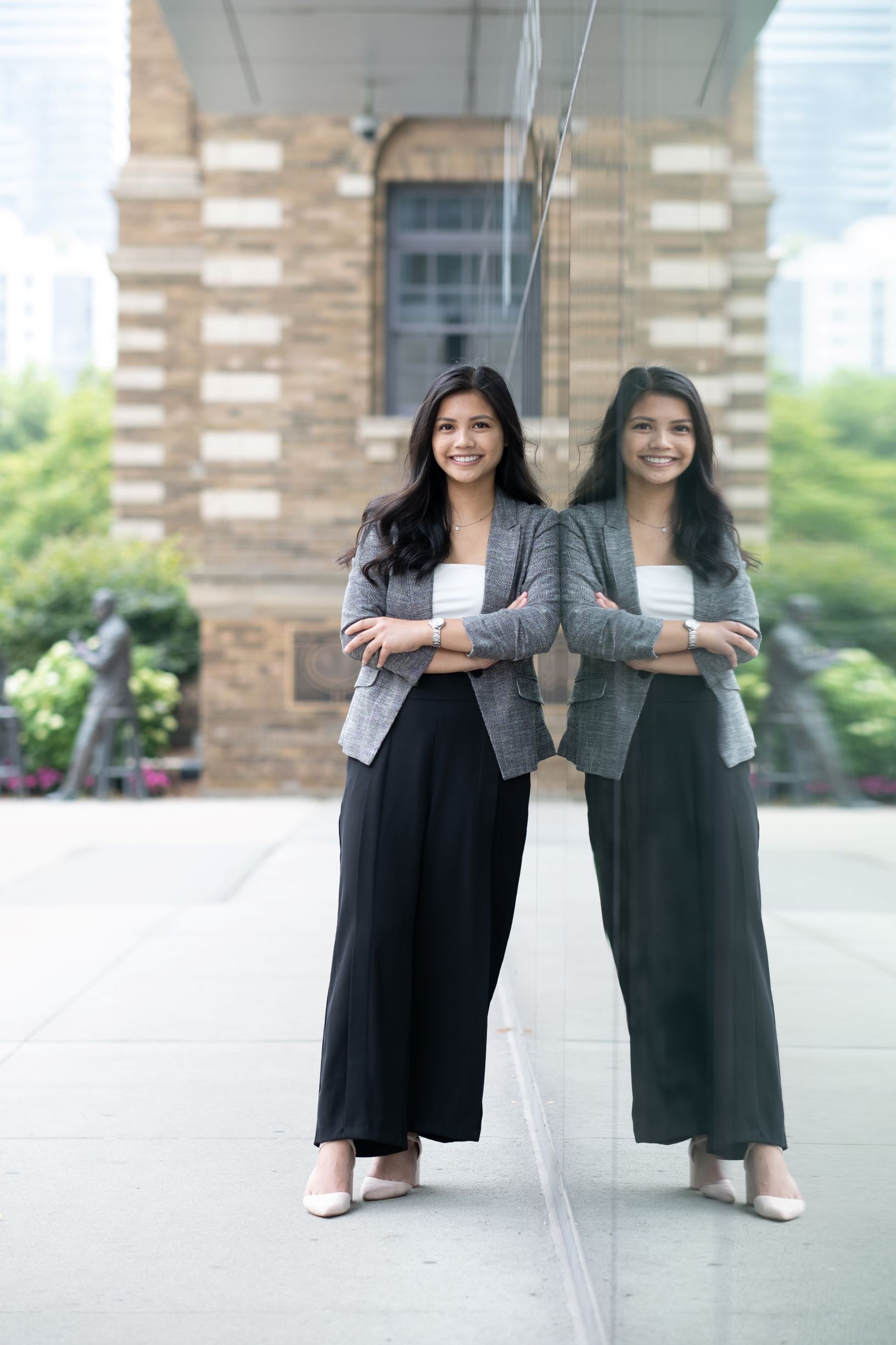
What projects are you working on right now?
Currently, I’m working on my Ph.D. project, where we investigate the role of microRNAs in endothelial cell-cardiomyocyte crosstalk in hypertrophic cardiomyopathy.
What are you looking forward to in your graduate studies?
I’m looking forward to learning advanced experimental techniques and delving deeper into topics in cardiovascular physiology. I also look forward to attending classes in a real lecture hall connecting with other BME students and finally traveling to research conferences to immerse myself in the field and network!
What’s one thing you would like to improve on?
I’m hoping to improve my technical and communications skills. Most of my research background is in clinical research, and I’m excited to learn more of the basic sciences and biology in cardiovascular research.
What is your perceived career goal after graduating?
I’ve always been interested in science communication as well as teaching and pedagogy. I’ve taught science both formally as an undergraduate lab teaching assistant in cellular and molecular biology, and informally as a science instructor with Mad Science Toronto and absolutely loved these experiences. After graduating, I hope to pursue a teaching career in higher education.
Recently, I’ve reached out to BME alum who are in the teaching stream. I interviewed Dr. Jeanna Usprech, an assistant professor in the teaching stream at University of British Columbia. She directed me to various resources and volunteer opportunities to explore throughout graduate school, including the Prospective Professor in Training (PPIT) program and Let’s Talk Science. I hope to continue gaining experiences and building my repertoire in teaching and science communication.
What was challenging for you for research and career planning during COVID-19?
Unfortunately, I started graduate school as a master’s student in January 2020, right before the beginning of the first COVID-19 lockdown. Due to restrictions, I was unable to go into the lab or learn techniques from colleagues in my first year, which is essential in basic sciences research. It was difficult to visualize experimental workflows and predict results, especially when I began preparing for my Ph.D. transfer exam. Nevertheless, I think COVID-19 also impacted my future trajectory in a positive way. It helped me set personal goals when working independently and remotely and challenged me to make progress with limited access to resources.
The most challenging part of research and career planning during COVID-19 was the sense of isolation going through graduate school. Before the pandemic, I saw my lab members and colleagues almost every day, and it was easier to reach out, ask questions, discuss ideas, and find mentorship, whereas communicating through an online space 24/7 felt less engaging and personal. Regardless, I’m still thankful to be able to learn and create meaningful connections by reaching out to different BME alum and scheduling zoom call coffee chats with experts I would not have otherwise met!
2023
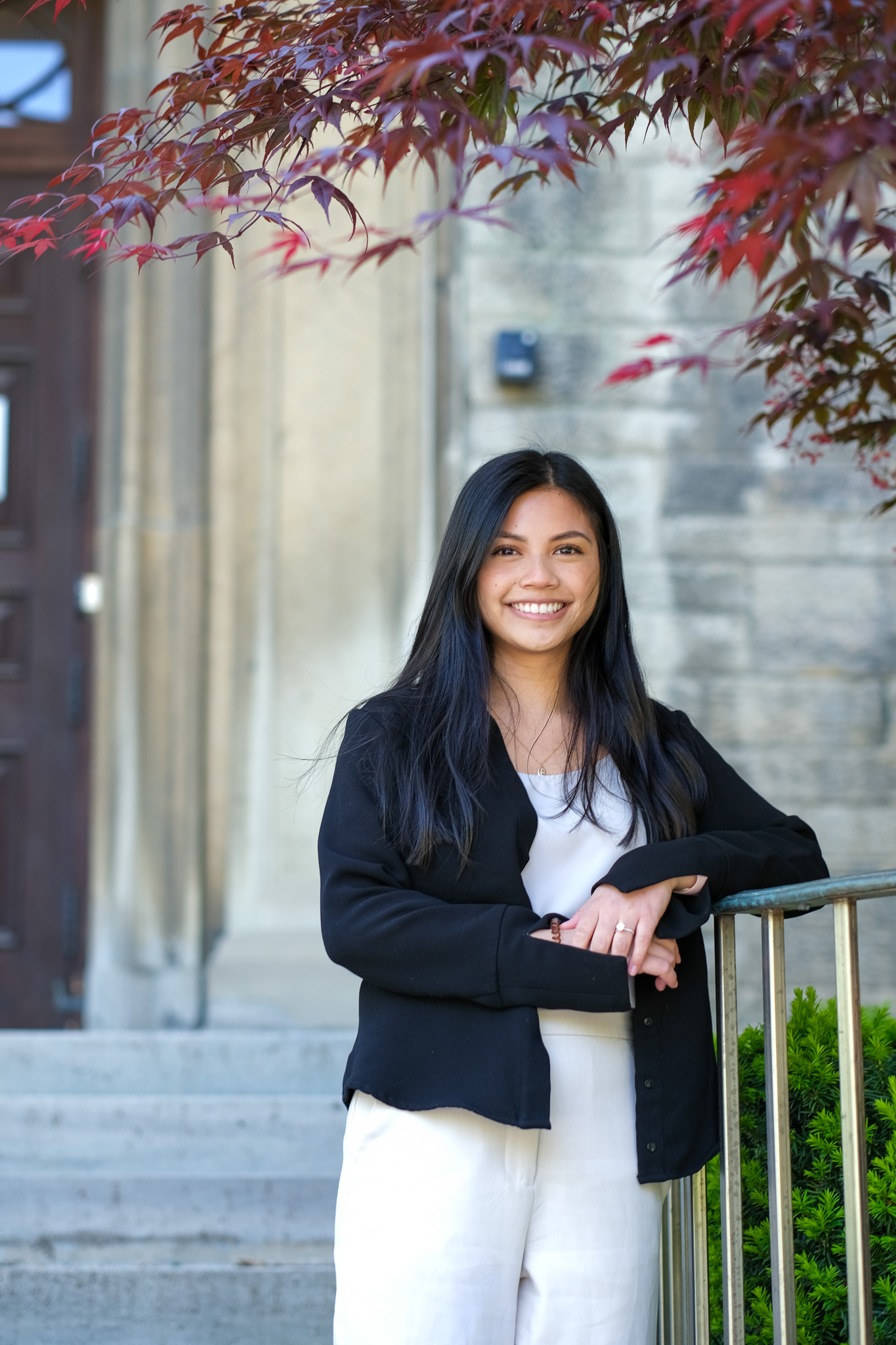
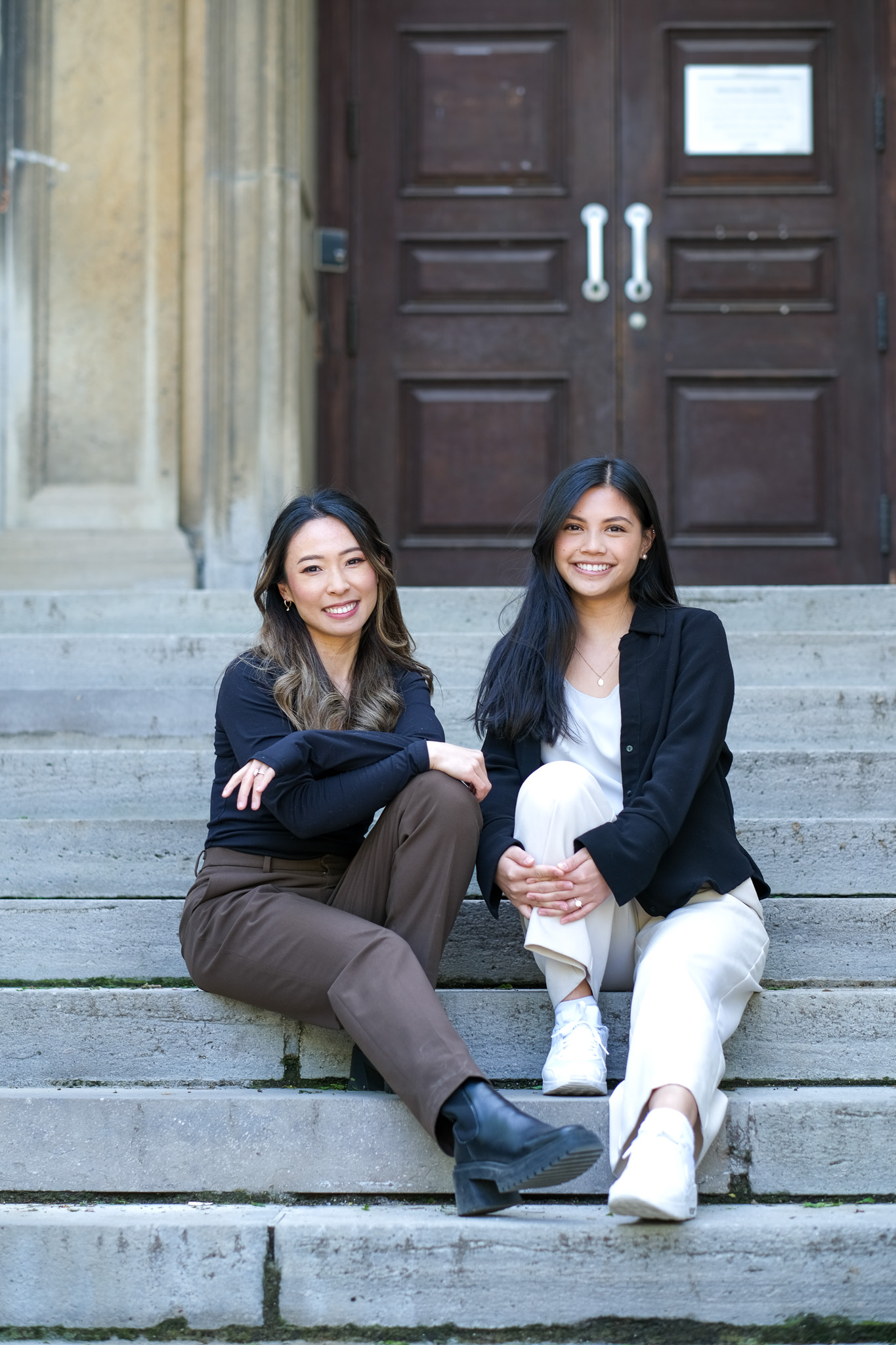
How has your research project changed in the last 2 years?
At the beginning of my Ph.D., my work focused on microRNAs involved in the crosstalk between the microvascular endothelium and cardiomyocytes in hypertrophic cardiomyopathy (HCM). As I was creating my model using induced pluripotent stem cell cardiomyocytes derived from patients with HCM and validating with myocardial tissue from donors, we observed fascinating microRNA expression patterns. While a large part of my project continues to look at the role of microRNAs in hypertrophic cardiomyopathy, this finding in the cardiomyocytes encouraged us to look further and explore, which I’m very excited about!
Looking back at your answers now, what advice would you give to your younger self in 2021?
Looking back, I would advise my younger self to approach my Ph.D. one day and one step at a time. Pursuing a doctorate degree is the marathon of all marathons, and while it may be tempting to sprint from day one, it is crucial to take breaks, breathe, and even slow down if it means conserving enough energy to finish the race. This journey will be demanding, but it is also an incredible and worthwhile pursuit.
Have your goals changed? How so?
Since the start of my academic journey, I have remained steadfast in my pursuit of combining my passions for science communication, teaching and pedagogy, and increasing accessibility to science education for underserved communities. Although my goals have remained constant, I’ve challenged myself to be more open to new experiences, opportunities, and even career paths that align with my interests and values.
What’s the next step for you?
After two challenging yet highly rewarding years, my next step is to sustain the momentum I’ve built up and keep pushing forward. This includes learning from my mentors and peers and seeking out opportunities for academic and professional growth and development. Whether it’s conducting research, attending conferences, or taking on leadership roles, I’m eager to expand my horizons and make the most of this next phase of my degree.
Shana Alexander, PhD Candidate
2021
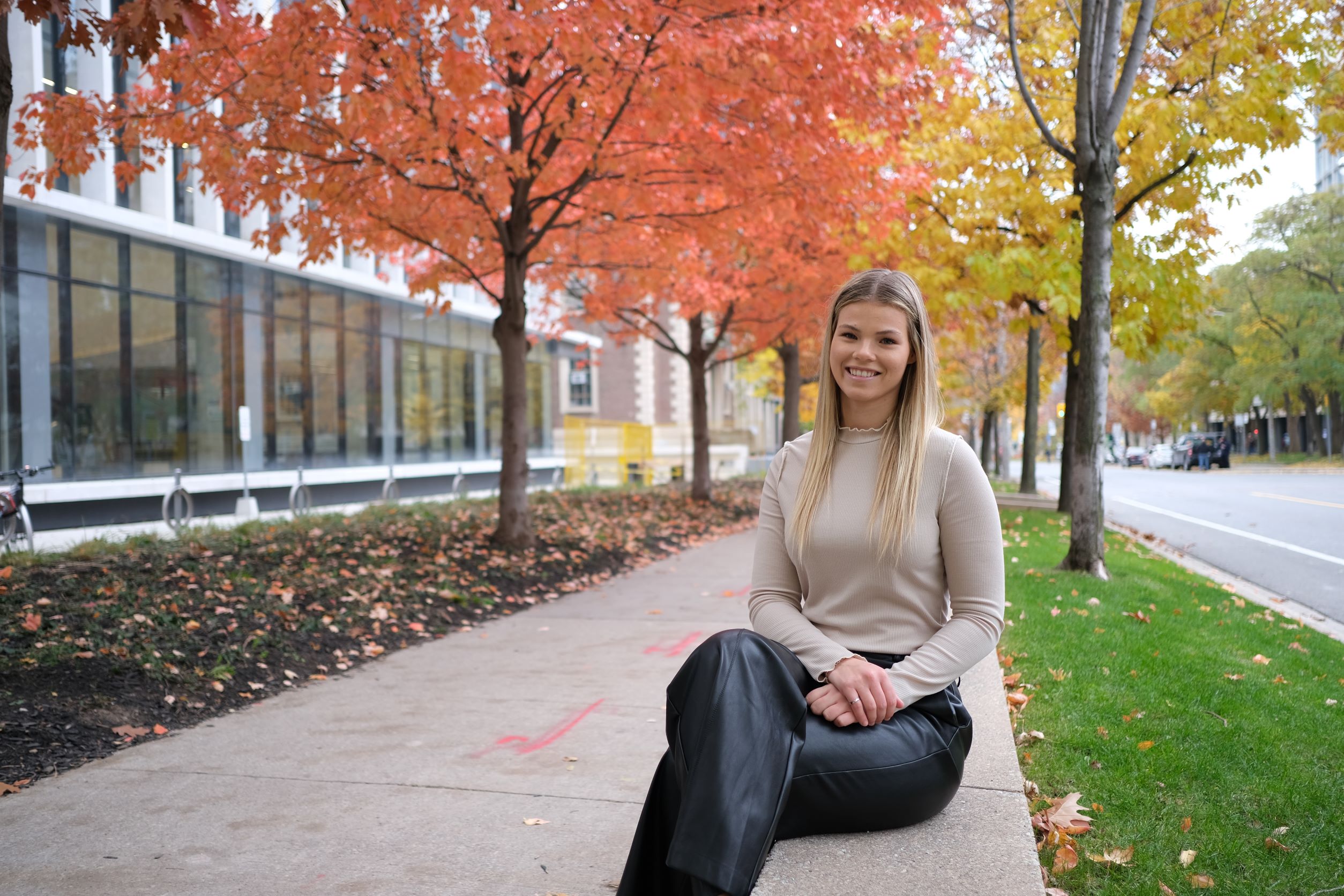
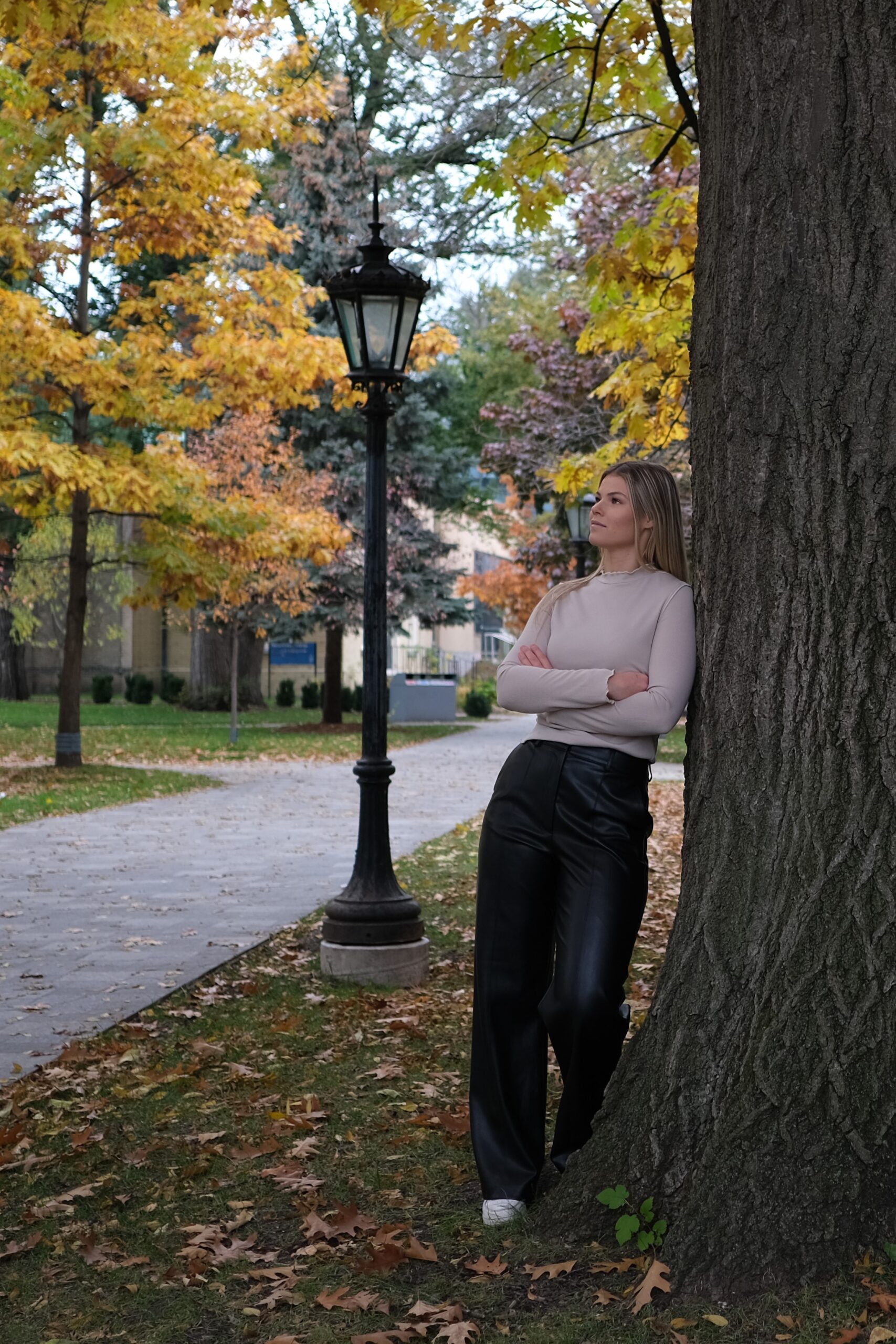
What projects are you working on right now?
Currently, a lot of my time is spent drafting my research proposal and figuring out what I would like my overarching project aims to be. I’m also working towards developing a DNA origami imaging technique that can be used simultaneously with flow cytometry.
What are you looking forward to in your graduate studies?
I’m looking forward to becoming more knowledgeable on how our immune system works and learning how we can leverage it to fight disease. I’m excited to be able to follow through with a project from start to finish, to learn new techniques in the lab, publish my first article, and to meet new people.
What’s one thing you would like to improve on?
I want to improve on my presentation skills and my ability to give scientific talks.
What is your perceived career goal after graduating?
After graduating, my career goal is to work in a biomedical/biotechnology industry job or cancer research center, doing meaningful work that I enjoy.
Throughout my Ph.D. I plan on attending conferences and networking events to learn more about what’s out there and to help me develop a clearer idea of what field I want to be in when I do graduate.
What was challenging for you for research and career planning during COVID-19?
At the start of COVID-19, I was just finishing my internship and it really got me to think about what I wanted to do next. Staying home and having more time to myself is what had me decide I wanted to pursue graduate studies. I felt like it wasn’t a great time to be in the job market and that I wasn’t done learning. I think because I’ve started my graduate studies Sept 2021, that COVID-19 won’t impact my future trajectory that much, but we shall see.
It’s been challenging trying to meet new people in BME as our courses have remained online however, my research hasn’t been impacted.
2023
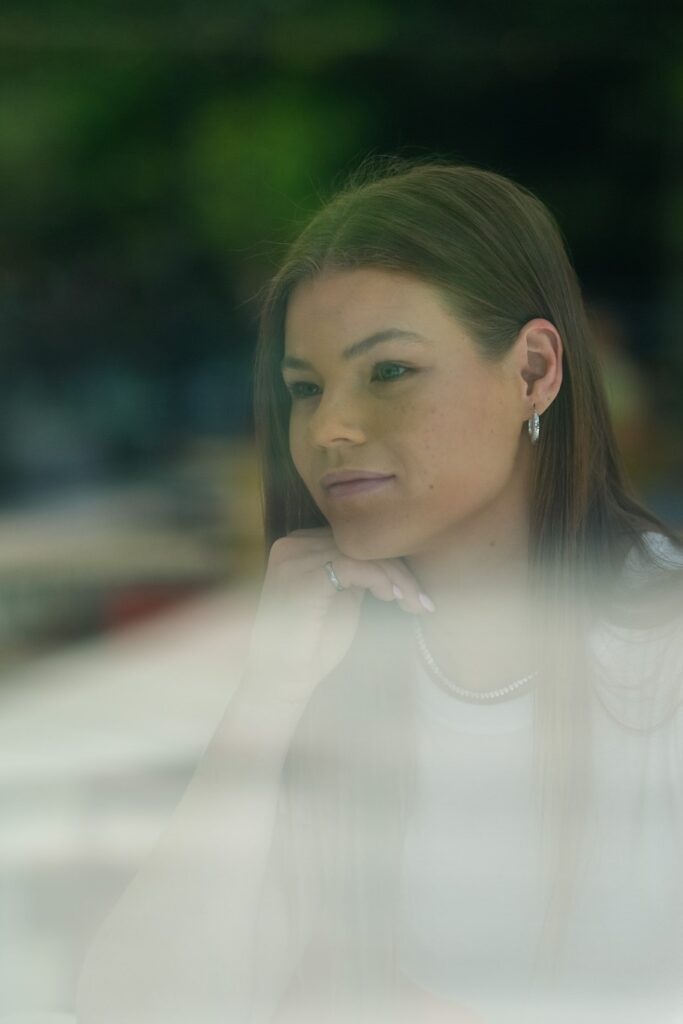
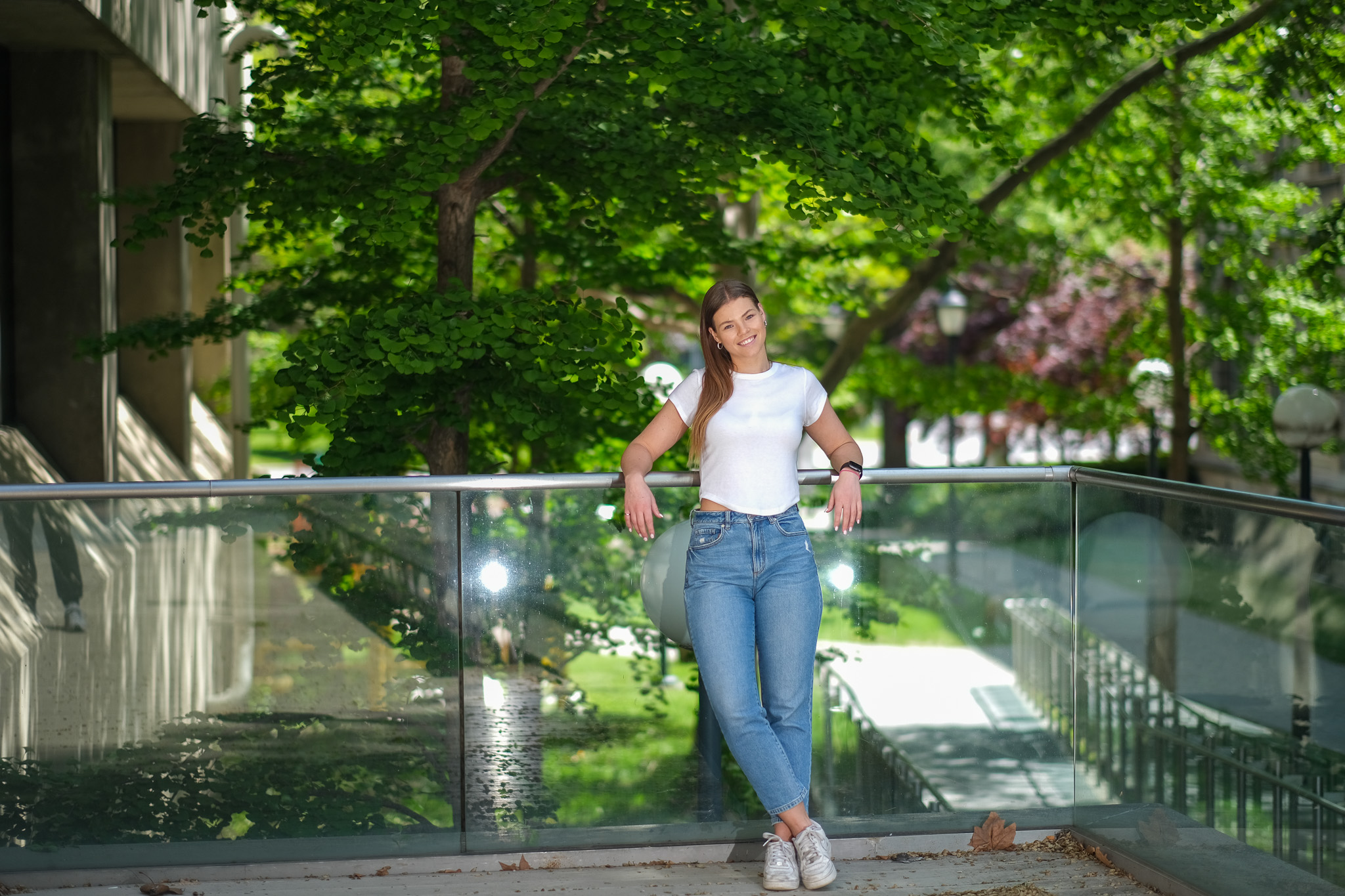
How has your research project changed in the last 2 years?
The overarching goal of my research project is the same as it was two years ago but the specific aims that I want to complete have evolved as I’ve learned more about the subject. As you read more about your PhD thesis area, you begin to understand the foundational knowledge of the field and therefore, you can see how your project can add to it. Because of this, what I aim to complete in my degree has changed over the years.
Looking back at your answers now, what advice would you give to your younger self in 2021?
The advice I would give my younger self would be to spend as much time as you need on understanding the subject area and planning your specific aims at the beginning. These things really help guide you on where to start with your research and point you in the right direction. The second thing would be to continue to pursue what you’re passionate about because that’s what keeps you motivated and that’s why it’s amazing to me how two years went by so quickly.
Have your goals changed? How so?
No, my goals haven’t changed. I still am eager to pursue a career in industry working on cancer research.
What’s the next step for you?
My next milestone is publishing my first first-author research article. I’m in the final stages of publishing the DNA origami imaging/flow cytometry technique that I spoke to two years ago. It’s really exciting to see a project come together and to be able to publish it to the science community.
Anchana Kuganesan, MASc Candidate
2021
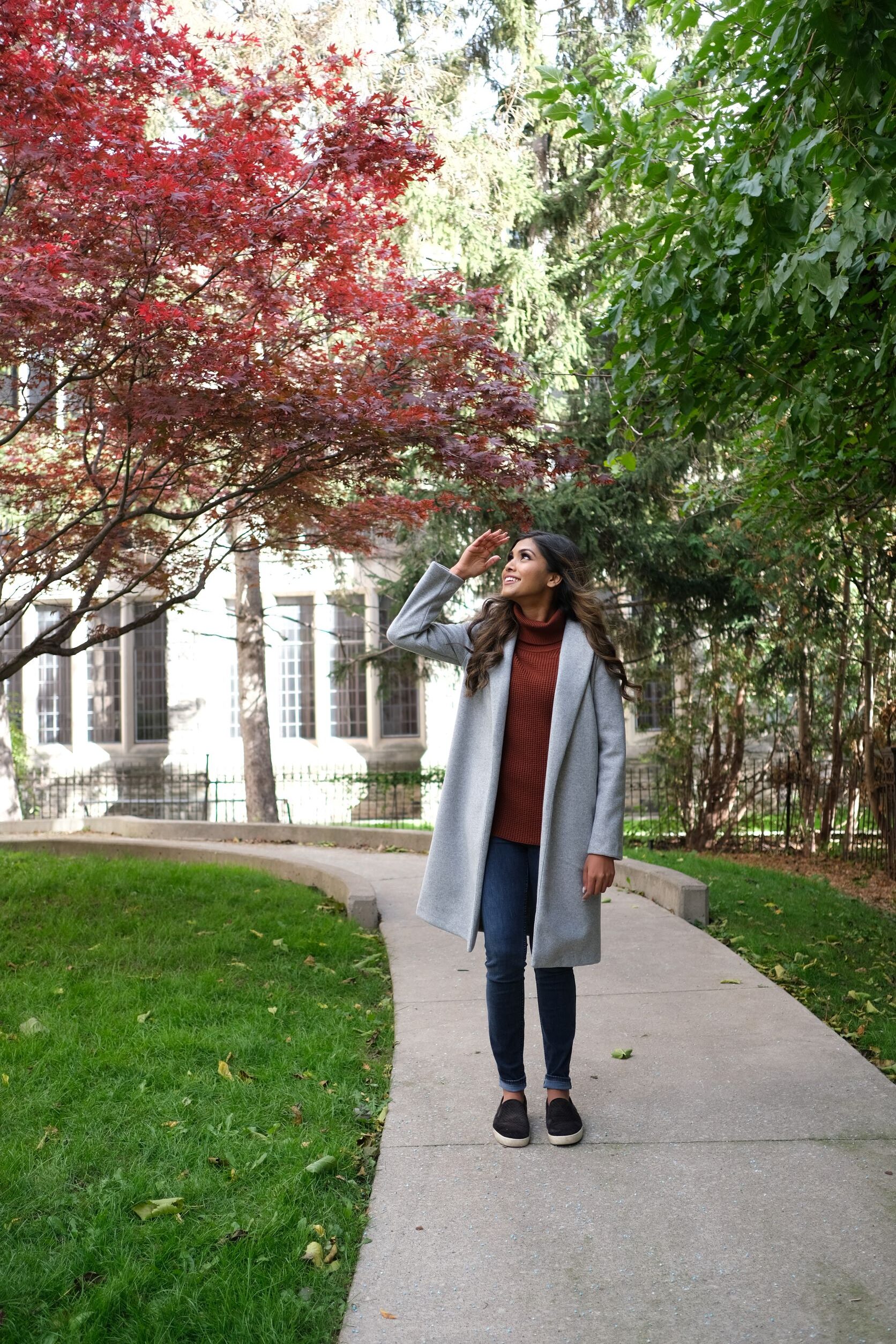
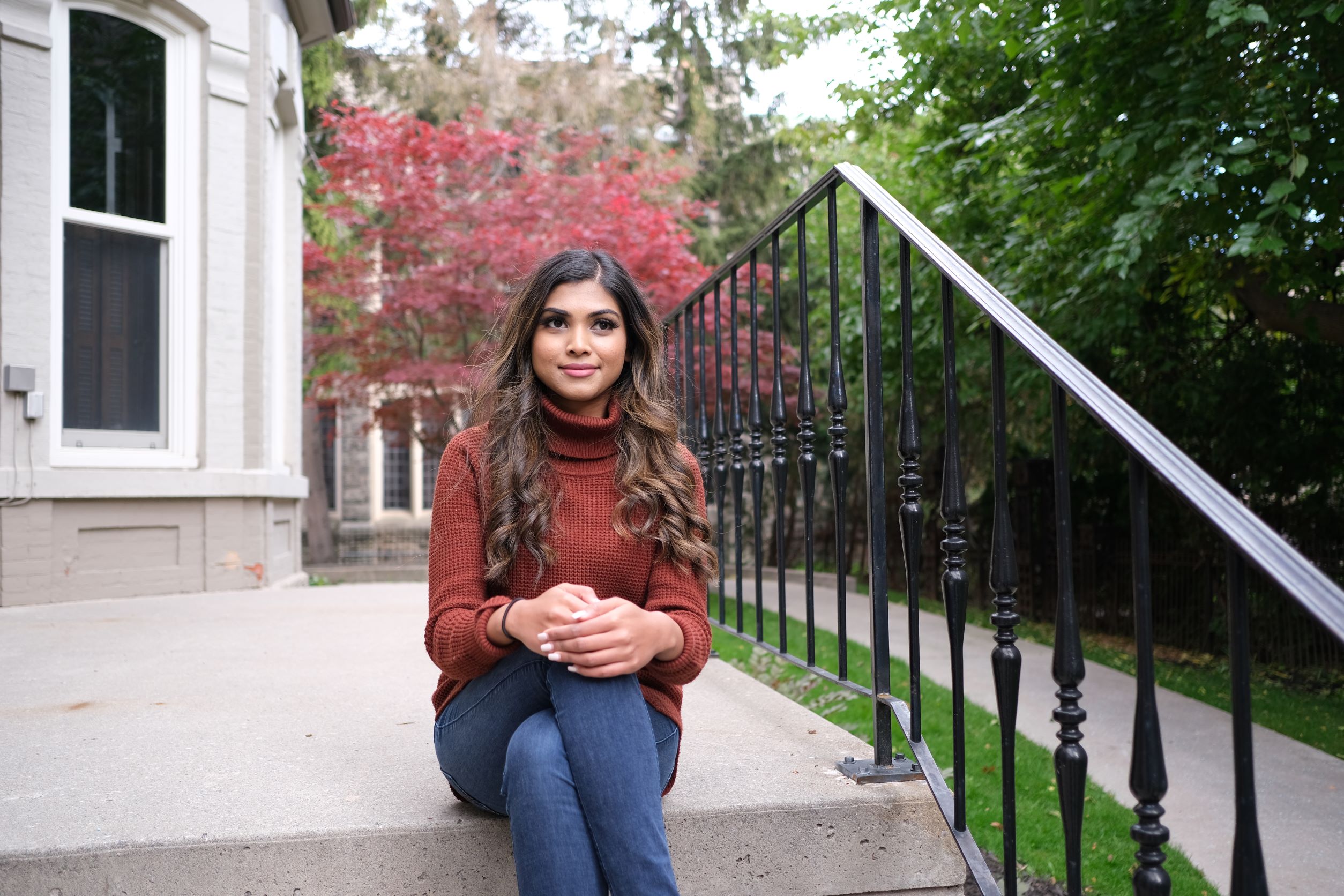
What projects are you working on right now?
I am currently working on the foot clearance project in Dr. Tilak Dutta’s lab. We are evaluating strategies for enhancing community mobility for individuals with disabilities. As part of my research, we will be assessing environmental features and testing interventions to improve pedestrian mobility.
What are you looking forward to in your graduate studies?
I am looking forward to learning as much as possible about biomedical innovations, specifically in rehabilitation. I would like to network with others in this field, and get further exposure to biomedical engineering in real-life examples. I hope that my work will be able to impact the lives of clients who will benefit from this research. I want to contribute to scientific progress through my lab’s research.
What’s one thing you would like to improve on?
I want to improve on my design thinking skills and develop solutions to assist those who will benefit from the design, accessibility, and usability of medical devices.
What is your perceived career goal after graduating?
I’m not too sure about this yet, as I’m still exploring my options in both academia and industry. I hope to conduct meaningful research in this program and continue to select courses that pique my interest. Because I don’t come from an engineering background, this field is still very new to me and I hope to gain experience through the many opportunities that come my way on a daily basis through the department and my lab.
I am attending networking events offered by the department and participating in additional sessions that discuss career navigation in this program.
What was challenging for you for research and career planning during COVID-19?
So far, it hasn’t affected my career progression as much because I am just getting started in the program. Due to COVID-19 restrictions, some events and sessions that would’ve been more interactive in person are online, so I do find myself wishing that the restrictions would get lifted. However, the department and my supervisor make these events and meetings enjoyable. On the other end, in some ways it is easier to have meetings online with those who are located in other areas and get more done during the day.
In terms of research, my onboarding was a bit delayed due to difficulties getting appointments because of the pandemic. This wasn’t too bad because my research is online right now, so there was no rush to get those items completed.
2023
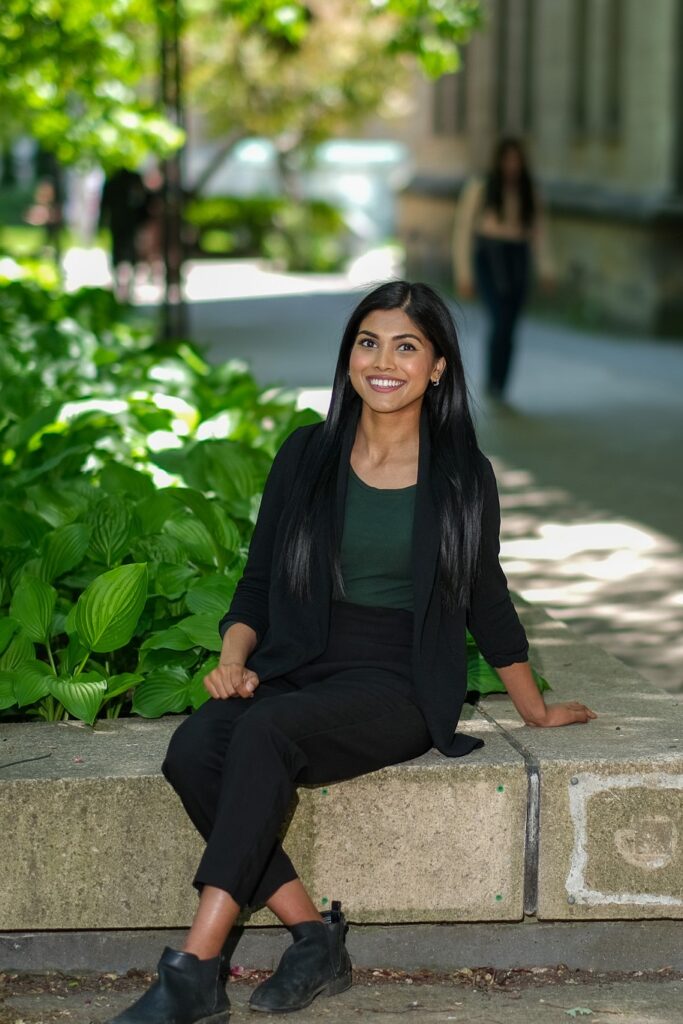
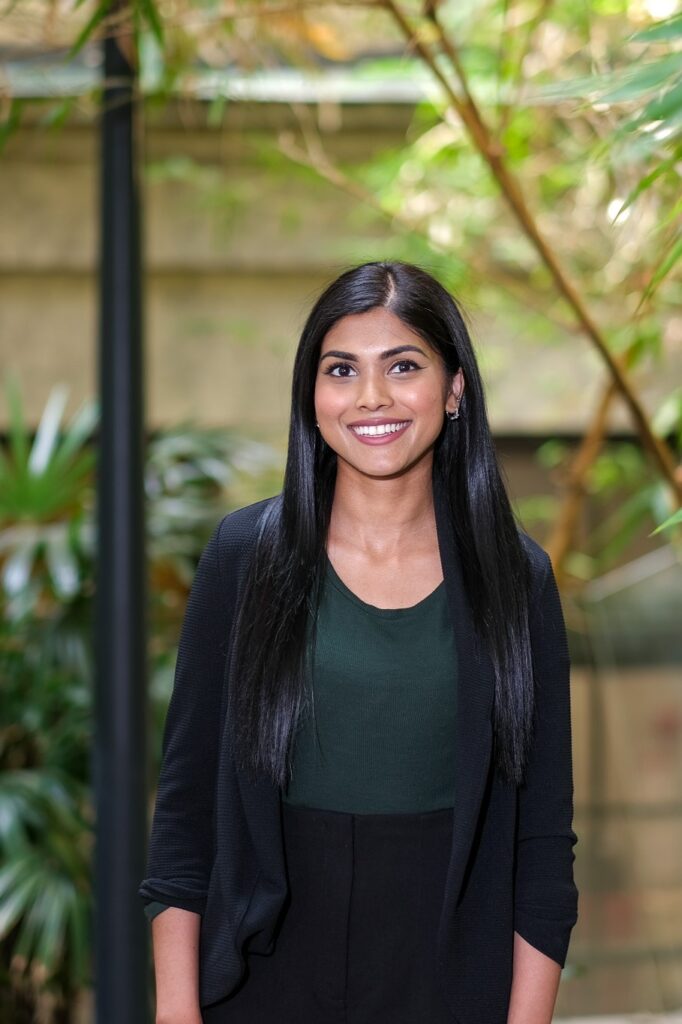
How has your research project changed in the last 2 years?
When I started my Masters we were going in and out of lockdown due to the pandemic, so it’s been a huge shift since then. I’m able to go to the lab and do my data collection as expected, without restrictions. My supervisor Dr. Tilak Dutta helped modify the project so that we are collecting more meaningful data. We are evaluating strategies for enhancing community mobility for pedestrians by measuring their minimum foot clearance (MFC) values as they navigate public walkways. The biggest change was the development of the MFC Finder Application by Dr. Hamed Ghomashchi on the Engineering Health Team. This application allows me to easily retrieve a pedestrian’s MFC value and assess their risk for tripping on a public walkway as they walk in front of the data collection module. We are now collecting data from seven different pedestrian groups; healthy younger adults, healthy older adults, individuals with visually detected gait asymmetry, walker users, cane users, white cane users, and healthy adults looking down at a mobile device. The ultimate goal of this work is to inform better design and maintenance guidelines for outdoor walkways to reduce the risk of tripping for vulnerable pedestrians. Now that there are no restrictions in Toronto, we are getting a lot of pedestrians for our data collection, which is great for results!
Looking back at your answers now, what advice would you give to your younger self in 2021?
I would tell myself to enjoy the process more and not to worry so much if I don’t know what the future holds for me. Being open to new experiences definitely helps in grad school, you never know what’s out there!
Have your goals changed? How so?
My goals change quite often, I find that there are so many opportunities that come my way and I want to try everything. I realized how much I enjoy working with a team, where I can learn from different people so I would want to continue working with a group instead of doing everything by myself as I had initially thought. I’m more comfortable with coding now, so I’d want to continue challenging myself with new languages in the future.
What’s the next step for you?
After I defend my thesis, I am hoping to go into industry for a few years. I am expecting to use a lot of the skills I gained in my graduate studies as I step away from academia. My ultimate goal is to return for my PhD as I am still very passionate about research.
I am going to defend my thesis in early September. I am hoping to go into industry for a few years following that. I am expecting to use a lot of the skills I gained in my graduate studies as I step away from academia. My ultimate goal is to return for my PhD as I am still very passionate about research and had such a wonderful experience with my lab!
Stefan Mladjenovic, PhD Candidate
2021
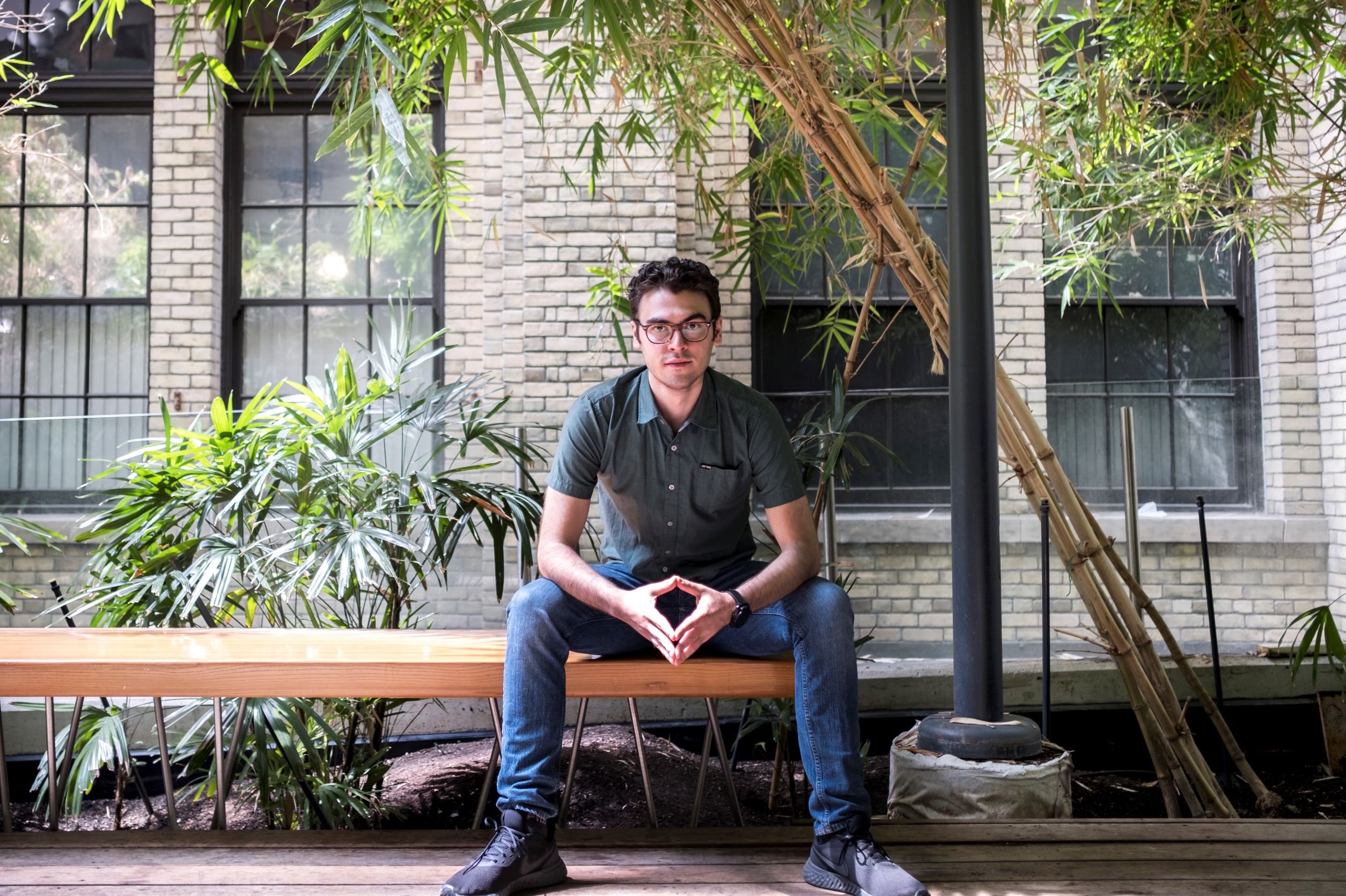
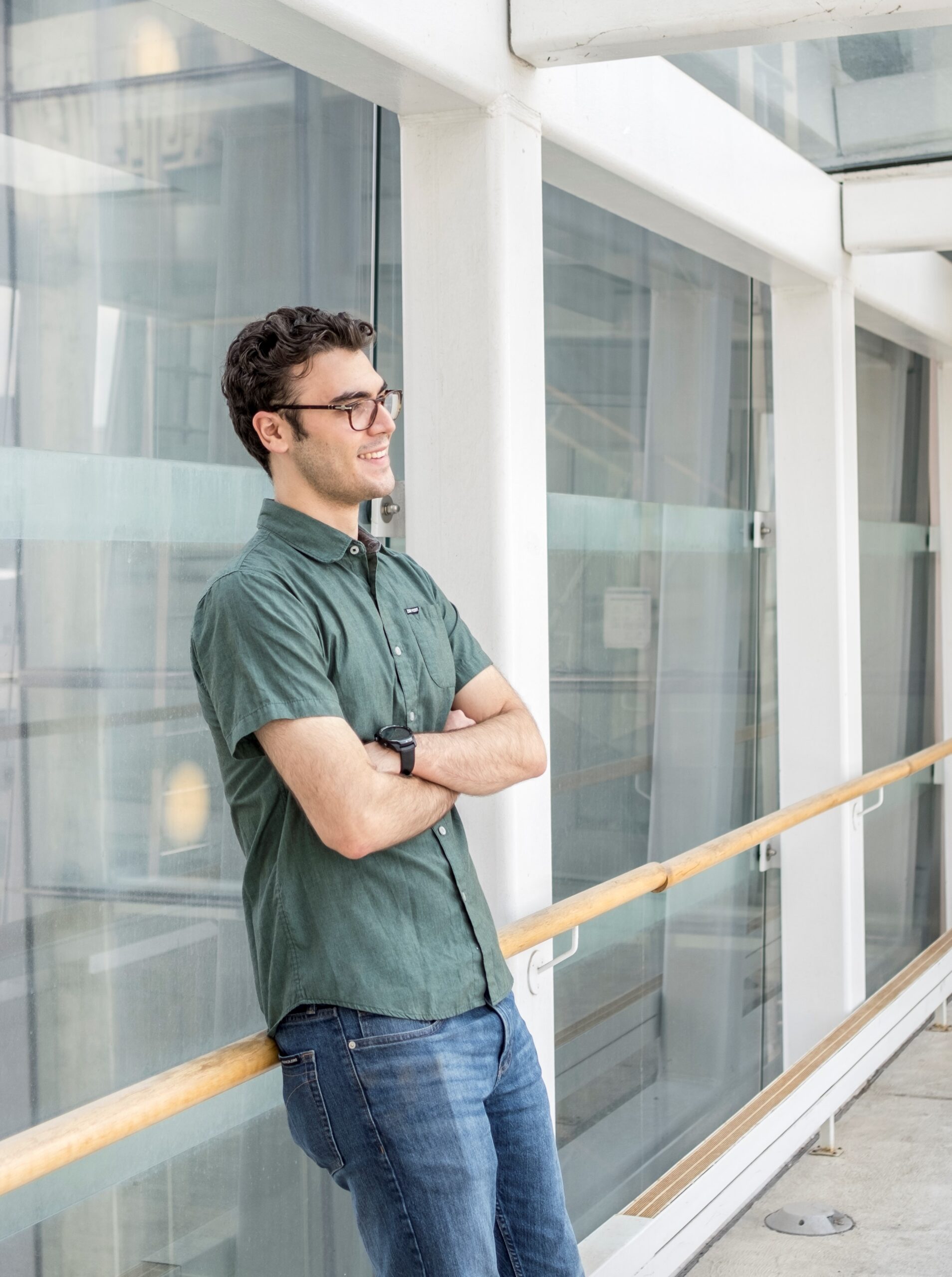
What projects are you working on right now?
I am researching how to improve the delivery of small materials called nanoparticles to tumours. Nanoparticles can be designed to deliver drugs to cancer cells in tumours. Of the particles that do reach the tumour, many get blocked by a mesh called the extracellular matrix surrounding cancer cells. Thus many nanoparticles cannot reach the cancer cells which lie behind this barrier. I’m investigating how nanoparticles transport deep into the tumour and how the extracellular matrix influences this process.
What are you looking forward to in your graduate studies?
I look forward to connecting with my peers in the BME program since I didn’t have much of a chance to this year (partially due to COVID-19). I will be in the PhD program for several years and being with friends makes the ride more enjoyable. I’m also looking forward to honing my technical skills in the lab and more importantly my critical thinking skills. I feel proud when I feel myself improving as a person and a researcher.
What’s one thing you would like to improve on?
I want to improve on finding balance in my personal and professional life. Sometimes I will spend a lot of my week dedicated to one or the other rather than having a consistent balance. This is partially due to time management and the nature of experiments.
What is your perceived career goal after graduating?
I am still learning about myself and different opportunities. My career goal doesn’t centre around a particular occupation but rather around two of my guiding principles: to become better every day and to improve the lives of others. I believe these two principles will persist during my graduate studies and my life afterwards since I find them rewarding and don’t think I will ever satisfy them in my mind. There are many roles and occupations I can pursue to be consistent with my principles.
I consistently work towards fulfilling my two personal guiding principles. I fulfill the first principle by developing new skills, cultivating relationships, and learning from others (both within biomedical engineering and beyond). The second principle I fulfill by dedicating myself to activities that serve others; such as through volunteering and contributing to science that may improve the lives of others.
What was challenging for you for research and career planning during COVID-19?
I am generally optimistic about the future because there are always opportunities for growth and improvement. As long as I remain flexible, work hard, and have good luck, I believe that many opportunities will exist that interest me. Given the current pandemic and greater awareness of a future pandemic occurring, there may be a greater need for research and development in the fields of biotechnology and biomedical sciences (e.g. therapeutics, vaccines).
I moved to Toronto to begin my PhD in September 2020. When I started, our lab used a booking system to manage when people would be in the lab. Since there was a maximum 50% capacity, it was challenging to learn new skills and connect with people due to space constraints and distancing. Thankfully we were able to adapt to the circumstances with video calls and thoughtful scheduling and communication.
2023
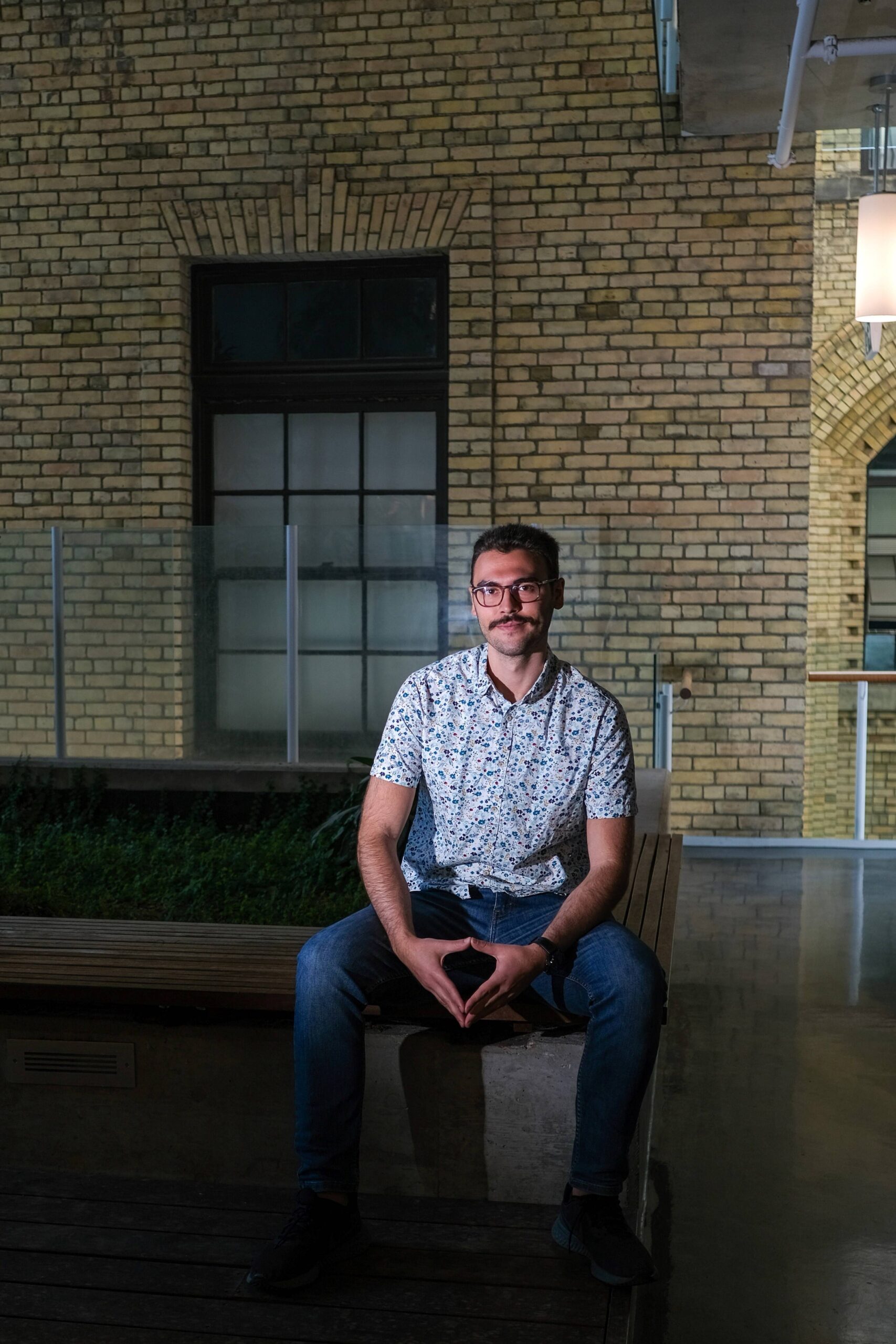
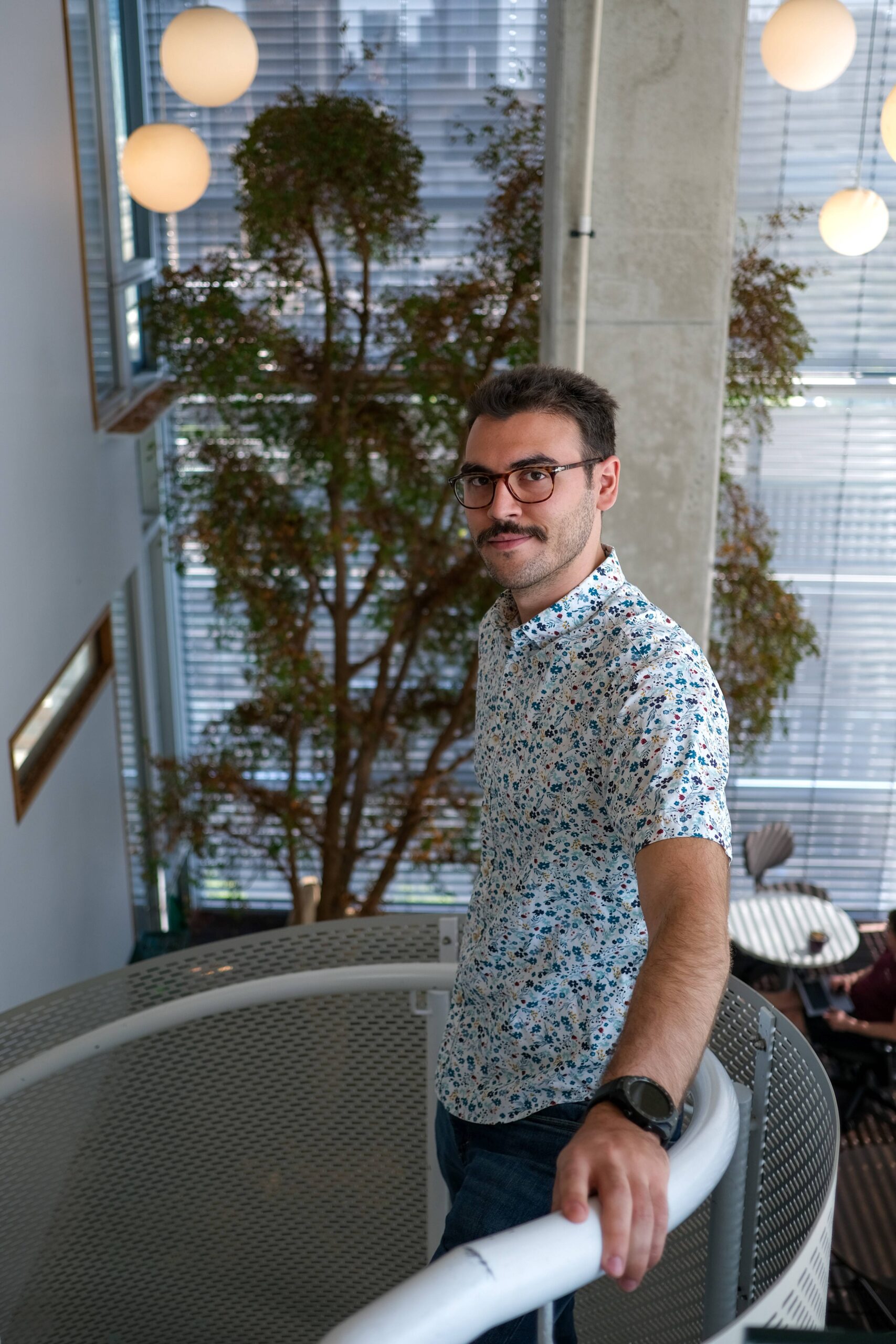
How has your research project changed in the last 2 years?
Over the last two years the essence of my project has remained the same, but the data I gathered has guided me to work on new directions. Through experimentation, I now realize that my previous understanding of the interactions between nanoparticles and the tumour microenvironment is very different from how I understand it today. Unfortunately I cannot get into specifics at this point.
Looking back at your answers now, what advice would you give to your younger self in 2021?
As I read my answers from two years ago, I would advise my younger self in 2021 to realize that graduate school is not just a place to learn technical skills. Technical skills are a smaller part of the value of graduate school. Instead, graduate school is an excellent environment to learn more about myself, make deep connections with colleagues, and build transferable skills, such as in planning, execution, critical thinking and communication.
Have your goals changed? How so?
My principles that guide my goals and behaviour have not changed. I am interested in pursuing a career in academia at the moment. However I also enjoy learning about careers outside of academia. I’ve learned that the mindset and abilities you develop throughout your PhD open you up to several opportunities that I was unaware of two years ago.
What’s the next step for you?
I am entering my fourth year in September 2023 and am excited to continue working on my research.
Meghan Rothenbroker, PhD Candidate
2021
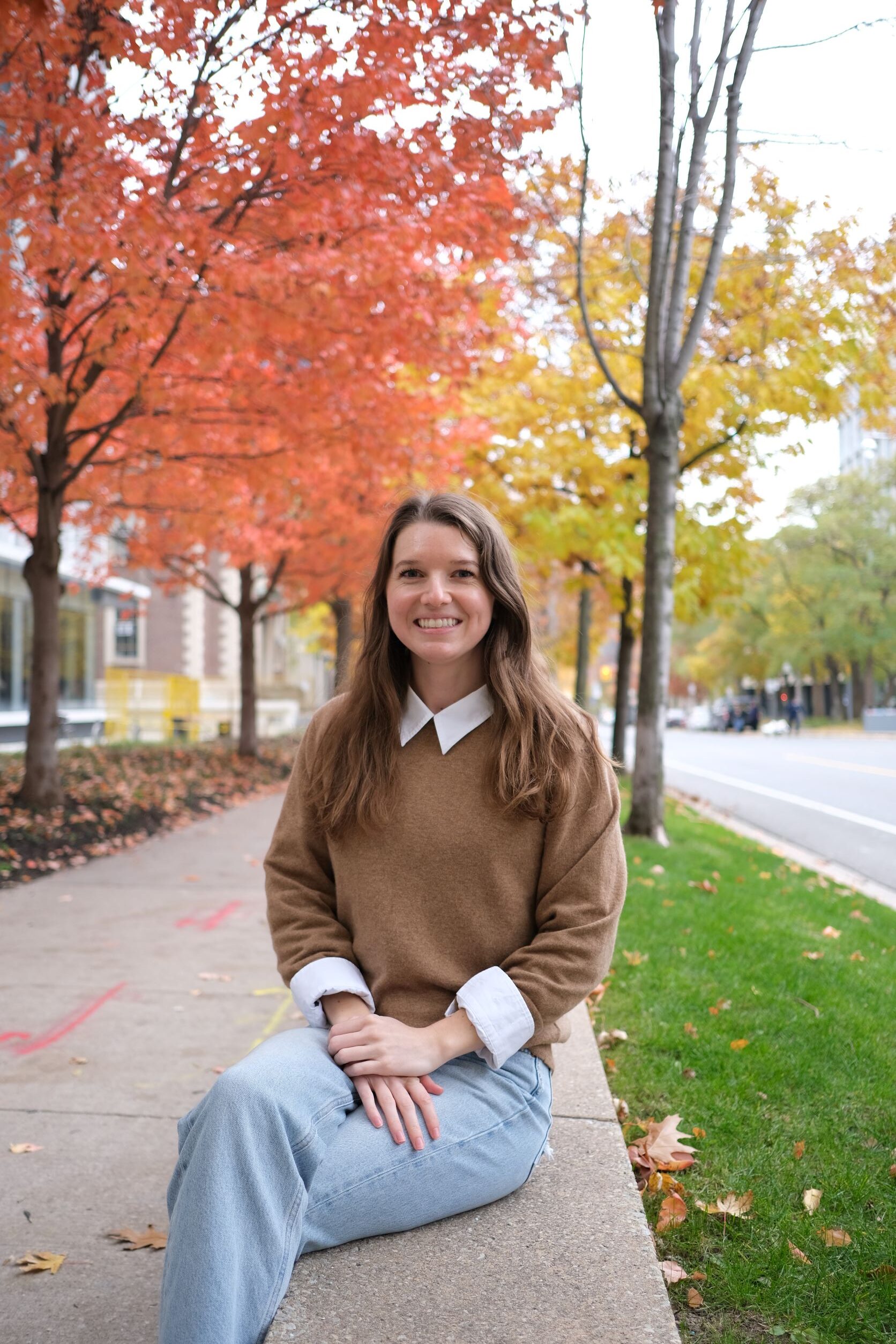
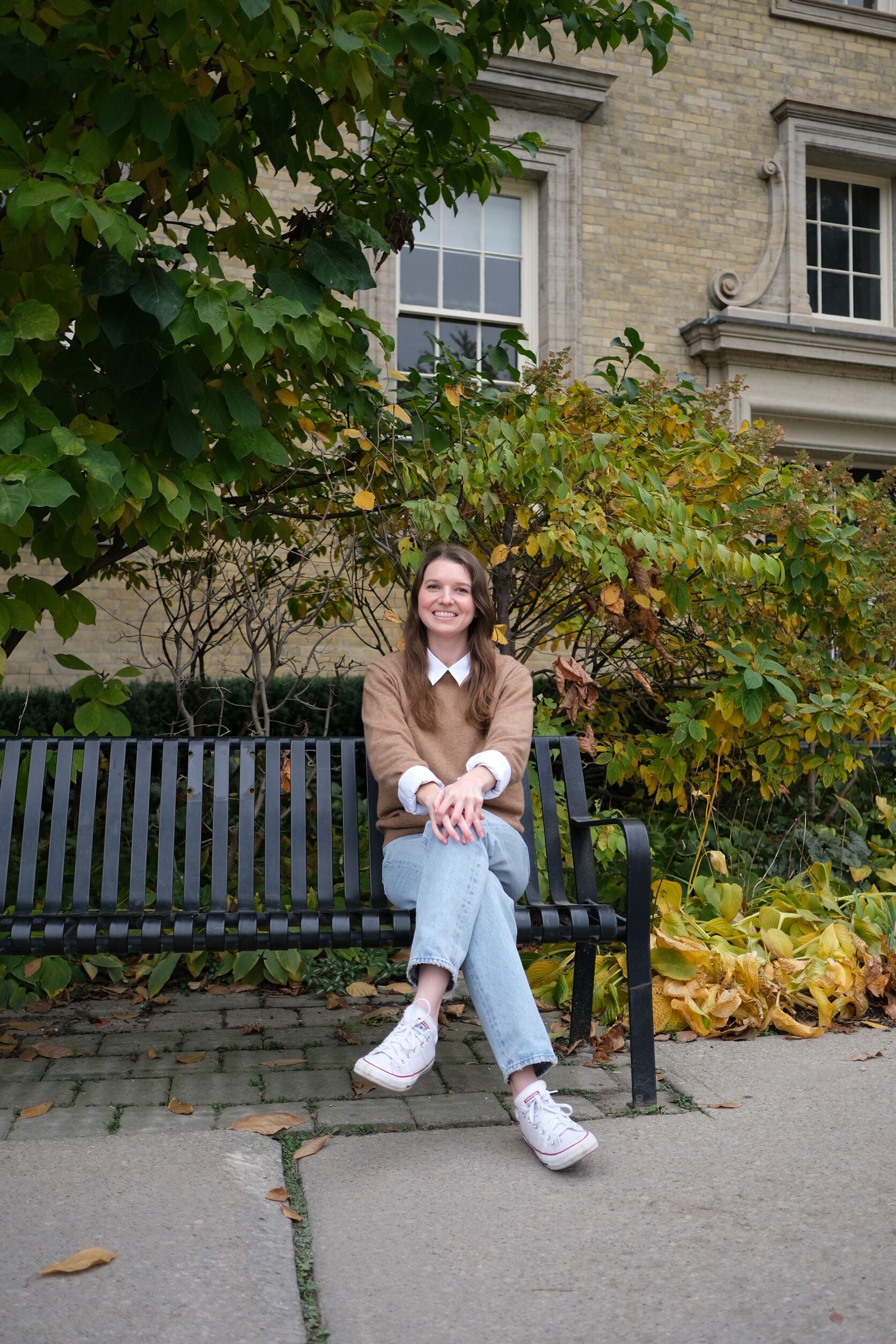
What projects are you working on right now?
Right now, I am working on investigating how nanostructure design parameters influence a structure’s uptake into cells. The impact of this work is that by deciphering how the different structure designs lead to improved or reduced uptake by different cells we can potentially selectively increase uptake into a desired cell type while minimizing uptake by off target cells via design strategies. This has important applications in targeted therapeutic delivery, for example.
What are you looking forward to in your graduate studies?
I am looking forward to learning new things, developing new skills, and making new friends!
What’s one thing you would like to improve on?
I would like to improve on how I read and retain information from literature. I sometimes find it difficult to recall specifics regarding what I have read so I hope I can find a way to improve on this and gain more insight from my readings.
What is your perceived career goal after graduating?
At this time, I think I would enjoy a career in consulting or venture capital. So rather than being the one working in the lab to move science forward I would be contributing to scientific progress by securing funding for research groups or facilitating commercialization of their solutions.
I am currently working as a contract scientific consultant with a company that has developed a COVID-19 product they want to bring to market. I am incredibly grateful for this opportunity because I am gaining potentially career relevant experience while pursuing my studies.
What was challenging for you for research and career planning during COVID-19?
I think the COVID-19 pandemic gave me a greater appreciation for science. When I’m in the lab I sometimes question how what I am doing will have any tangible impact or application in the real world, but the pandemic demonstrated how science, and more specifically scientists coming together to work towards a common goal, can provide solutions that make a difference in the world. I don’t feel as though COVID-19 affected my career progression however, it was interesting to observe how different professions and different companies were impacted by the pandemic and how they handled such impact. I think the impact COVID-19 has had on my future trajectory is that it has solidified my desire to want to continue being involved in science even after completing my studies.
I think what was most challenging for research during COVID-19 was trying to work around the capacity limits and scheduling. Not being able to come into lab exactly when you want and being able to stay as long as you want does impact the rate at which you can progress in your experiments. Additionally, I missed having all my peers working alongside me to provide guidance when faced with a challenge or just moral support when experiments aren’t working. Regarding career planning, that was not something I was actively working on/thinking about during COVID-19. Rather, I was more focused on research and therefore cannot speak to any challenges.
2023
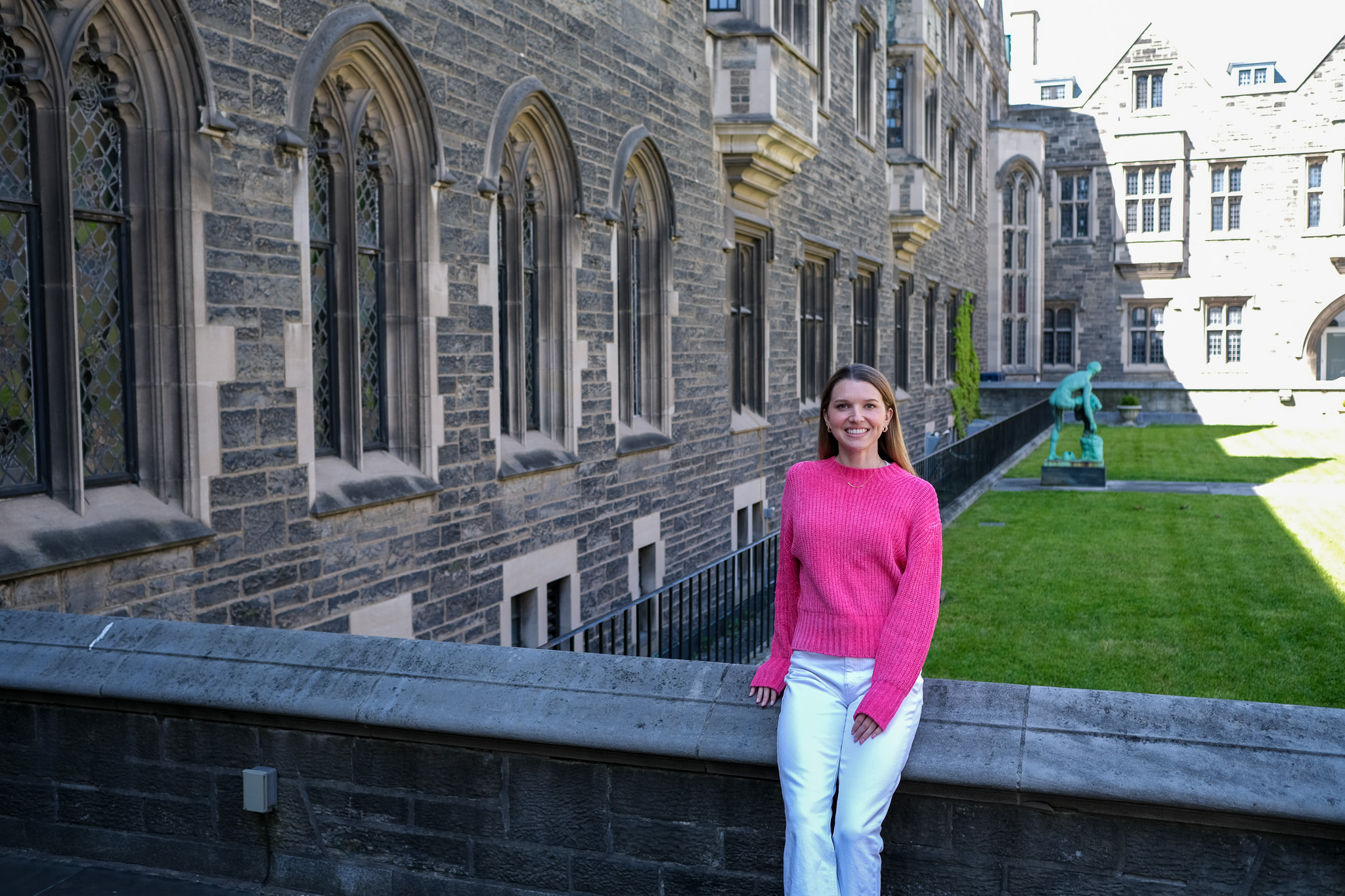
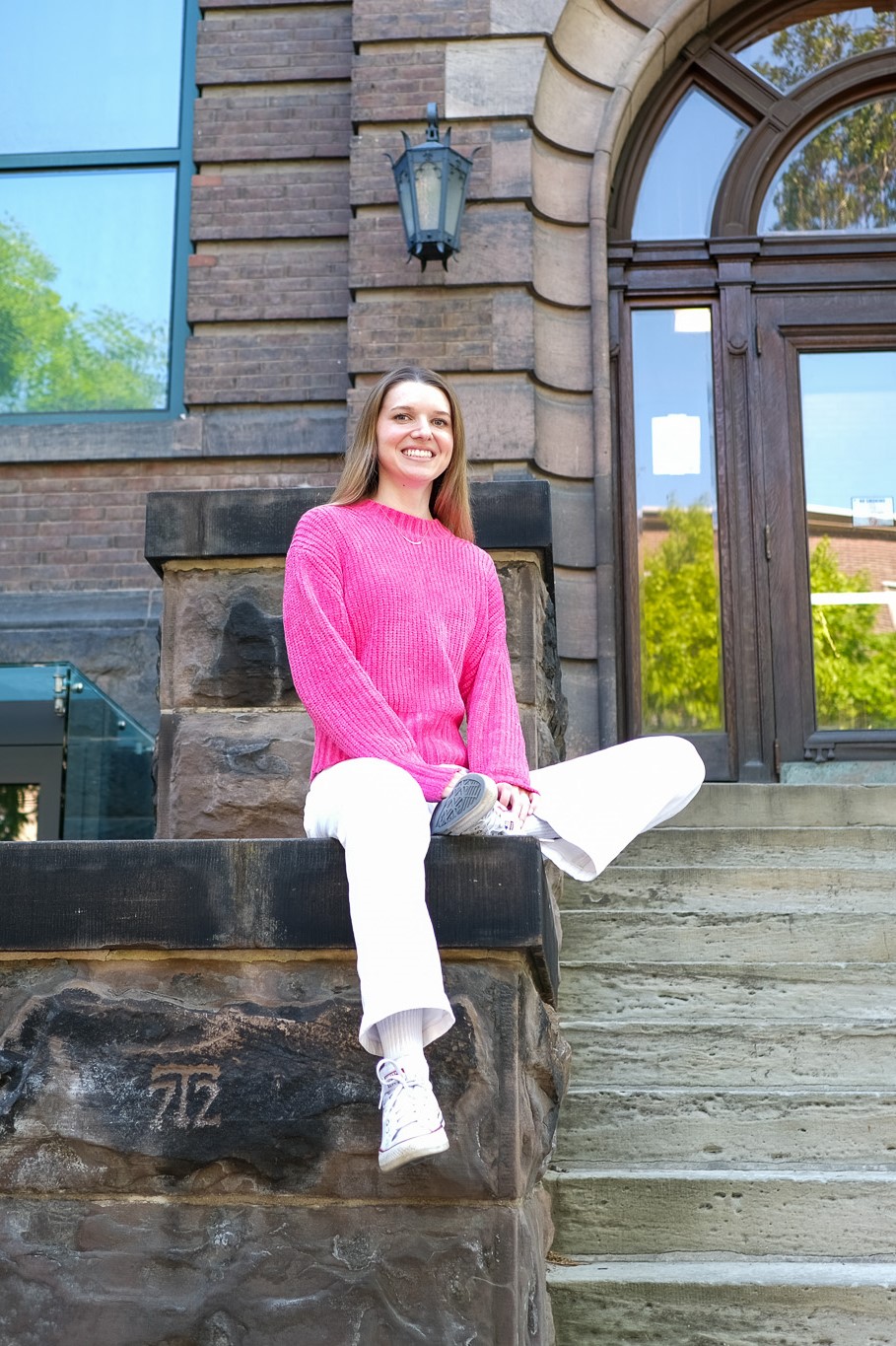
How has your research project changed in the last 2 years?
My research project has changed to focus on how the surface chemistry of DNA origami nanostructures can be optimized or engineered for improved delivery to the lymph node. Targeting the lymph node is important for vaccine applications, therefore improving the delivery of the nanostructures to the lymph node may result in a more robust immune response when used in vaccine applications.
Looking back at your answers now, what advice would you give to your younger self in 2021?
I would tell my younger self to dedicate more effort to planning and articulating a project. At the beginning of my PhD I was very excited to learn new techniques, put them into practice and start generating data. However, I wish I had been more consistent and dedicated a little bit more time to working on my project plan to ensure all experiments are in line with the big picture.
Have your goals changed? How so?
I don’t think my goals have changed significantly, I still plan on entering the industry post graduation but I am taking this time to learn more about the different types of opportunities for PhD graduates.
What’s the next step for you?
The next step for me is to prepare a first author manuscript and hopefully attend some conferences to hear what other researchers in the field are working on, in addition to sharing my own work.
Lily Takeuchi, PhD Candidate
2021
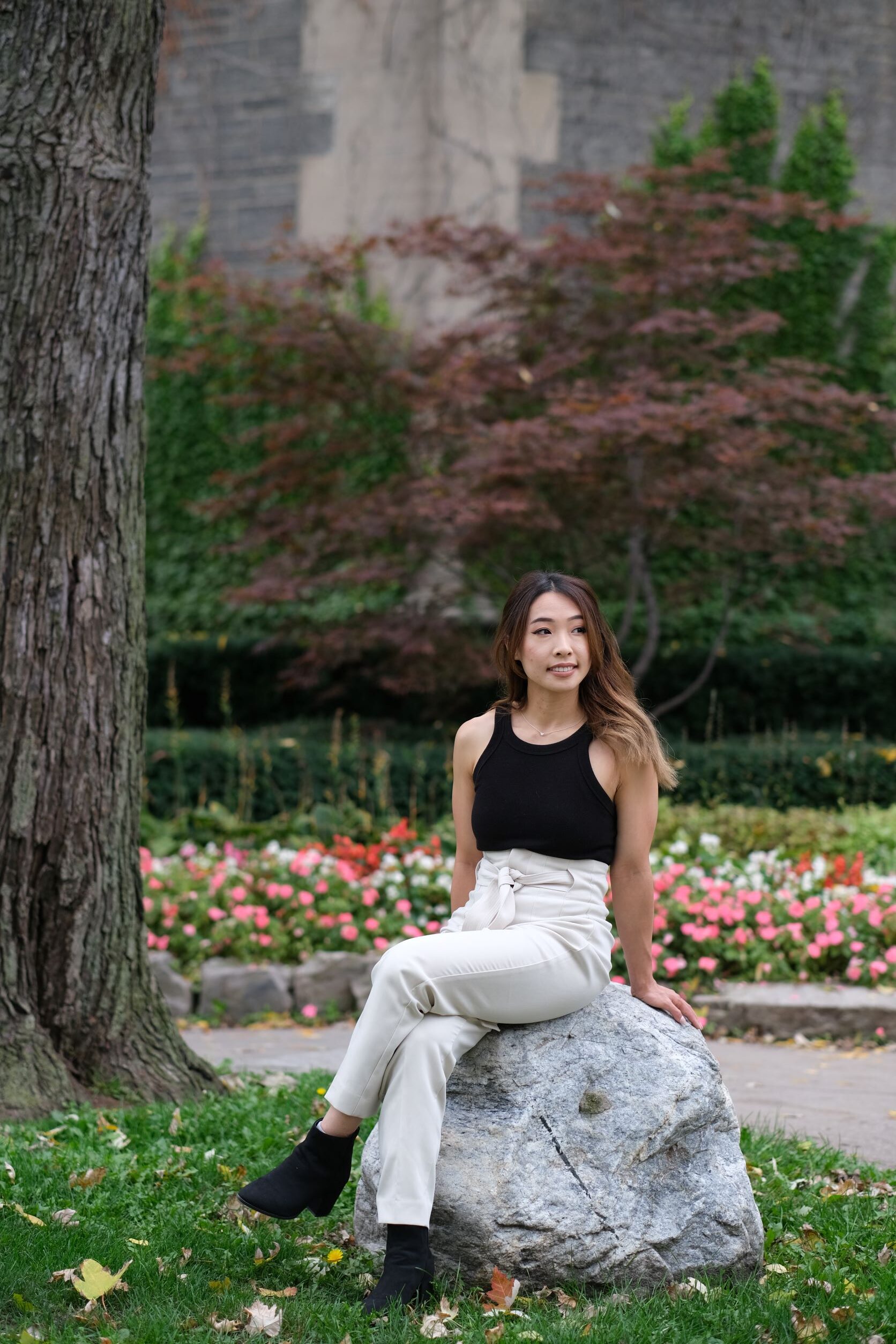
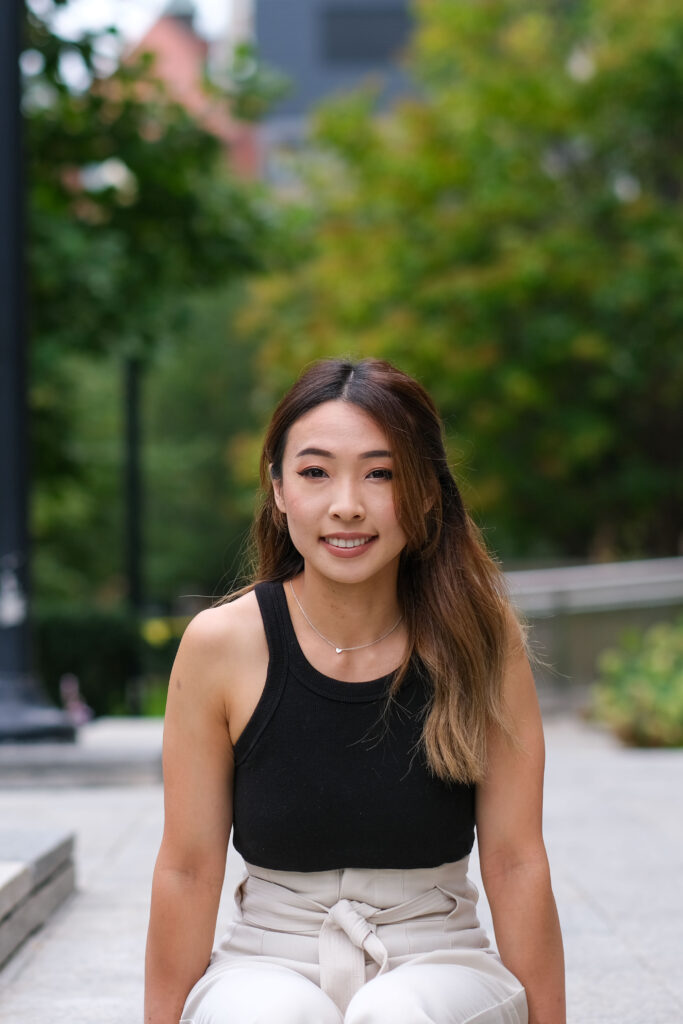
What projects are you working on right now?
I’m developing stem cell derived models of the blood brain barrier on microfluidic platforms. I’m trying to model this under the context of Alzheimer’s disease, and the hope is that, if we can develop a model that mimics how molecules cross the blood brain barrier, we can screen numerous pharmaceutical targets that can be used to treat Alzheimer’s.
What are you looking forward to in your graduate studies?
What I really enjoyed about my first graduate experience (MASc) that a lot of my lab mates, had become lifelong friends. It’s not often in life that you are going through the same struggle for a few years. I really look forward to meeting a diverse set of people and learn from them.
What’s one thing you would like to improve on?
I want to be more comfortable with uncertainty. A lot of graduate students tend to have a type A personality, where we always want to come off as incredibly prepared. But it’s also in the past inhibited me from new learning experiences.
What is your perceived career goal after graduating?
I want to work in a clinical field or clinical intersection field. I’m really interested in clinical chemistry as a postdoctoral fellowship. Another career option would be medical science liaison, or something that bridge the industry and the end users.
I’m currently trying to talking to as many people as possible. I think that’ll give me perspective on different career paths, and I’ve definitely learned about positions that I would have never thought about before. A tactic I’m trying right now is cold calling people on LinkedIn and network.
2023
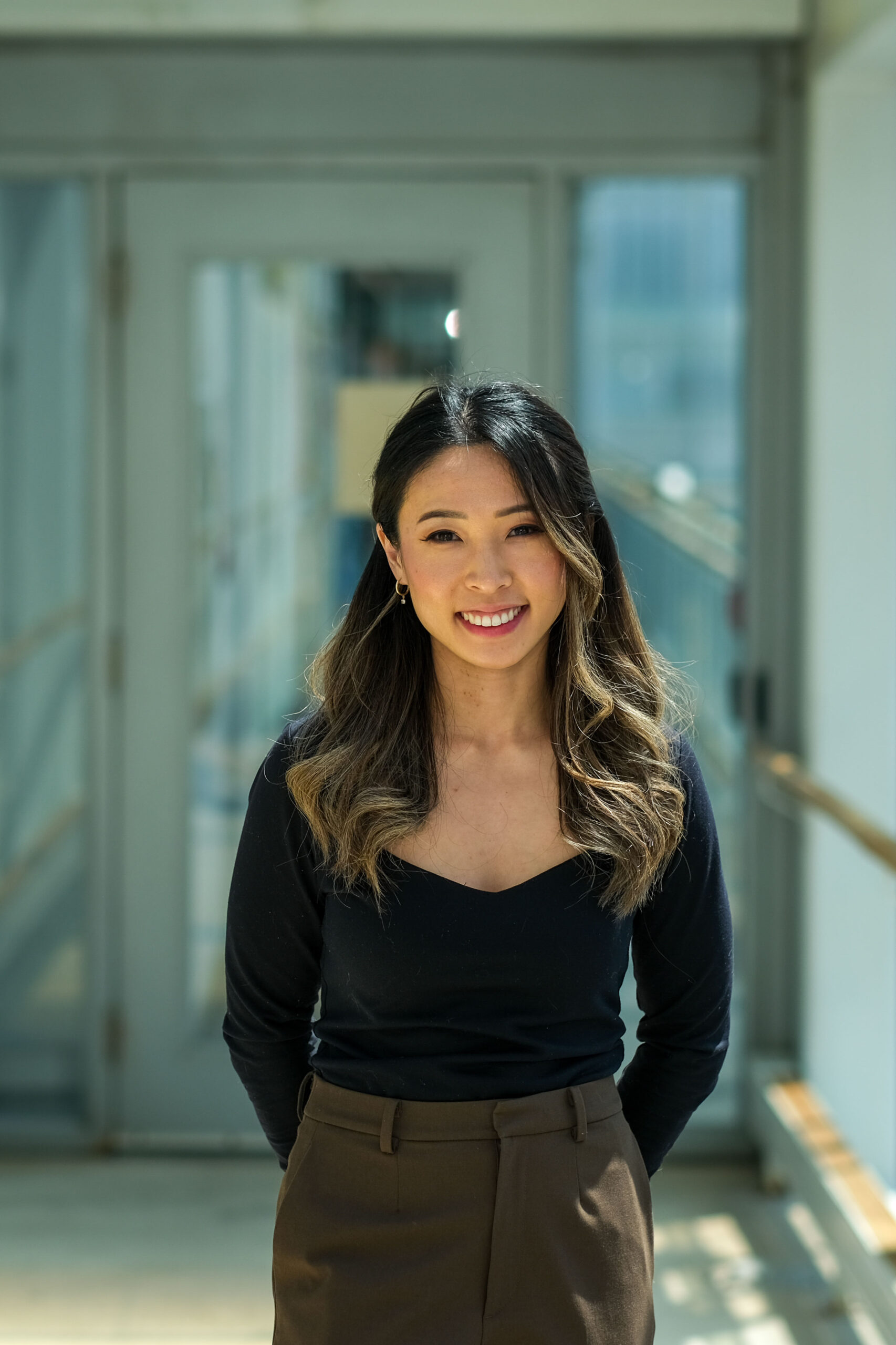

How has your research project changed in the last 2 years?
While the scope of my research project remains mostly the same, we’ve identified some interesting features of our disease models that I’m excited to explore further, including investigating differences in amyloid toxicity and cellular trafficking in cells from patients with Alzheimer’s disease.
Looking back at your answers now, what advice would you give to your younger self in 2021?
I would tell myself to value my time more and to not hesitate to pursue an idea. It’s great to be cautious, and as scientists, there’s always an emphasis to ensure there’s logic, reason, and 10+ other citations backing you to do something. However, I think there is an element of creativity that can, at times, get overlooked in scientific training, which could be a barrier to progress. Looking back, I would encourage myself to try new ideas for the sake of exploring what could happen.
Have your goals changed? How so?
My professional goals and interests remain the same, I still want to enter into a career that supports science translation and/or intersects with the clinical setting. My personal goals have changed quite a bit, I realize a big part of graduate school is ensuring you maintain balance in your life to keep you resilient and I’ve started to put a greater importance on relationships and engaging in activities that challenge me in a non-academic setting.
What’s the next step for you?
Be disciplined and continue to have passion for the work and push out some papers this year to share with the world!


